
151+ Research Proposal Topics [Updated 2024]

Crafting a compelling research proposal begins with selecting the right topic—a task that demands careful consideration and a thoughtful approach. In this blog post, we’ll delve into the intricacies of choosing research proposal topics, exploring the importance of a well-defined focus and guiding you through the steps to create a robust proposal.
How to Select Research Proposal Topics?
Table of Contents
Selecting research proposal topics is a crucial step in the research process. Here’s a step-by-step guide to help you choose a compelling and impactful research topic:
- Self-reflection:
- Identify your personal interests, passions, and curiosities.
- Consider topics that resonate with you on a deep level.
- Academic and Professional Interests:
- Reflect on subjects that captivated you during coursework or work experience.
- Assess the relevance of these interests to your academic or career goals.
- Current Issues and Trends:
- Stay informed about contemporary challenges and emerging trends in your field.
- Choose a topic that addresses current issues for greater relevance and impact.
- Literature Review:
- Conduct a thorough review of existing research in your chosen field.
- Identify gaps and limitations in the current body of knowledge.
- Formulate Clear Research Questions:
- Develop clear and concise research questions based on the gaps identified.
- Ensure your questions are feasible and align with the chosen topic.
- Choose a Methodology:
- Select an appropriate research methodology (experimental, qualitative, quantitative, or mixed methods).
- Justify your choice and discuss data collection techniques.
- Significance and Contribution:
- Articulate the relevance of your proposed research.
- Highlight the potential contributions your work can make to the field.
- Research Design and Plan:
- Outline the specifics of your research design.
- Create a realistic timeline, allocating resources and budget effectively.
- Address Challenges and Limitations:
- Acknowledge potential challenges and limitations.
- Discuss strategies to mitigate challenges and be transparent about constraints.
- Conclusion:
- Summarize key points of your research proposal.
- Emphasize the importance of the chosen topic and encourage feedback.
By following these steps, you can ensure that your research proposal topic is not only engaging but also has the potential to make a meaningful contribution to your field of study.
151+ Research Proposal Topics: Category Wise
Science and technology.
- The Impact of Artificial Intelligence on Job Market Trends
- Advancements in Renewable Energy Technologies
- Exploring the Potential of CRISPR Technology in Genetic Engineering
- Cybersecurity Measures for Critical Infrastructure Protection
- The Role of Blockchain in Supply Chain Management
- Augmented Reality in Education: Enhancing Learning Experiences
- Quantum Computing: Current Status and Future Implications
- Sustainable Technologies for Environmental Conservation
- Smart Cities: Integrating Technology for Urban Development
- Robotics in Healthcare: Applications and Ethical Considerations
Health and Medicine
- Precision Medicine: Customizing Healthcare Based on Genetic Factors
- The Impact of Telemedicine on Patient Care
- Mental Health Stigma: Strategies for Reduction and Education
- Vaccination Hesitancy: Understanding Causes and Developing Interventions
- Aging Population and Healthcare Challenges
- Bioinformatics and Personalized Cancer Therapies
- The Role of Artificial Intelligence in Diagnosing Medical Conditions
- Emerging Infectious Diseases: Preparedness and Response Strategies
- Nutrition Education in Schools: Promoting Healthy Lifestyles
- Healthcare Disparities: Addressing and Eliminating Gaps in Access
Social Sciences
- Social Media and its Influence on Political Discourse
- Impact of Social Isolation on Mental Health in Elderly Populations
- Cultural Competence in Education: Training and Implementation
- The Role of Gender Stereotypes in Career Choices
- Cyberbullying: Prevention and Intervention Strategies
- The Effects of Immigration Policies on Migrant Communities
- Restorative Justice in Criminal Justice Systems
- Examining the Relationship Between Social Media Use and Self-Esteem
- Intersectionality in Feminist Movements: Challenges and Opportunities
- Community Policing: Building Trust between Law Enforcement and Communities
- E-Learning Platforms: Effectiveness and Challenges
- Inquiry-Based Learning: Enhancing Critical Thinking Skills
- Inclusive Education Practices: Meeting the Needs of Diverse Learners
- The Impact of Standardized Testing on Educational Equity
- School Safety Measures: Strategies for Prevention and Response
- Teacher Professional Development: Models and Effectiveness
- Online Education Accessibility for Students with Disabilities
- Gamification in Education: Engaging Students in Learning
- Bilingual Education: Benefits and Challenges
- STEM Education Initiatives: Encouraging Interest in Science and Technology
Business and Economics
- Sustainable Business Practices: Balancing Profit and Environmental Impact
- Corporate Social Responsibility in Multinational Corporations
- Impact of Artificial Intelligence on Business Operations
- Economic Consequences of Global Health Crises
- Digital Marketing Trends and Consumer Behavior
- Financial Literacy Education: Bridging the Gap
- Small Business Sustainability: Challenges and Strategies
- The Gig Economy: Implications for Workers and Employers
- Supply Chain Resilience in the Face of Global Disruptions
- Innovation and Entrepreneurship in Emerging Markets
Environment and Sustainability
- Climate Change Adaptation Strategies for Coastal Communities
- Biodiversity Conservation in Urban Environments
- Circular Economy Models: Reducing Waste and Promoting Sustainability
- Water Scarcity: Technological Solutions and Policy Measures
- Impact of Plastic Pollution on Marine Ecosystems
- Sustainable Agriculture Practices: Balancing Production and Conservation
- Environmental Education in Schools: Fostering Eco-Consciousness
- Green Building Technologies: Enhancing Energy Efficiency
- Ecotourism: Balancing Conservation and Economic Development
- The Role of International Agreements in Addressing Environmental Issues
Psychology and Behavior
- The Influence of Social Media on Body Image and Self-Esteem
- Cognitive Behavioral Therapy for Anxiety and Depression
- Impact of Childhood Trauma on Adult Mental Health
- Positive Psychology Interventions: Enhancing Well-Being
- Sleep Hygiene and its Impact on Mental Health
- The Psychology of Procrastination: Causes and Interventions
- Emotional Intelligence in the Workplace: Benefits and Training
- The Impact of Parenting Styles on Child Development
- Cross-Cultural Psychology: Understanding Cultural Influences on Behavior
- The Role of Music in Emotional Regulation and Stress Reduction
Political Science and International Relations
- The Rise of Populism: Causes and Consequences
- Cyber Warfare and International Security
- Human Rights Violations in Conflict Zones: Challenges and Solutions
- The Role of International Organizations in Global Governance
- Political Polarization: Understanding Divisive Trends
- Nuclear Proliferation and Arms Control Agreements
- Comparative Analysis of Electoral Systems
- Immigration Policies and Social Cohesion
- Global Health Diplomacy: Collaborative Approaches to Health Challenges
- The Impact of Disinformation on Democratic Processes
History and Cultural Studies
- Reevaluating Historical Narratives: Perspectives and Interpretations
- Cultural Impact of Globalization: Trends and Reactions
- Indigenous Rights and Representation in Historical Context
- History of Scientific Discoveries and their Societal Impact
- Archaeological Excavations: Uncovering Lost Civilizations
- Cultural Appropriation: Examining Controversies and Contexts
- The Role of Women in Historical Movements
- Preservation of Cultural Heritage: Challenges and Innovations
- Historical Trauma and its Contemporary Repercussions
- Impact of Colonialism on Contemporary Societies
Communication and Media Studies
- Influence of Social Media on Political Participation
- Media Representation of Marginalized Groups
- Fake News and Misinformation: Identifying and Combating Trends
- The Evolution of Print Media in the Digital Age
- Media Literacy Education: Navigating Information in the Digital Era
- Celebrity Culture and its Impact on Society
- The Role of Public Relations in Shaping Organizational Image
- Cross-Cultural Communication in Global Business
- Podcasting as an Emerging Medium of Communication
- Advertising and Consumer Behavior: Analyzing Persuasion Techniques
Philosophy and Ethics
- Ethical Considerations in Artificial Intelligence Research
- Bioethics in Medical Decision-Making
- Existentialism and its Relevance in Contemporary Society
- Animal Rights and Ethical Treatment in Scientific Research
- Environmental Ethics: Balancing Human Needs and Ecological Sustainability
- The Ethics of Genetic Engineering and Cloning
- Virtue Ethics in Professional Decision-Making
- Technology and Privacy: Ethical Dilemmas in the Digital Age
- Ethical Implications of Artificial Intelligence in Warfare
- Utilitarianism and its Application in Ethical Decision-Making
Education Policy and Administration
- School Voucher Programs: Impact on Educational Equity
- Teacher Evaluation Systems: Effectiveness and Fairness
- Inclusive Leadership in Educational Institutions
- Early Childhood Education: Policy and Implementation
- Standardized Testing: Implications for Educational Policy
- Education Funding Models: Challenges and Solutions
- School Choice and its Impact on Student Achievement
- Educational Technology Integration in Classroom Settings
- Community Engagement in School Decision-Making
- The Role of Educational Leaders in Fostering Inclusive Schools
Economics and Development Studies
- Microfinance and Poverty Alleviation Strategies
- Impact of Global Trade Policies on Developing Economies
- Economic Empowerment of Women in Developing Countries
- Sustainable Development Goals: Progress and Challenges
- Rural-Urban Migration: Economic and Social Impacts
- Financial Inclusion: Strategies for Bridging the Gap
- Foreign Aid Effectiveness: Assessing Outcomes
- Technology Transfer and Innovation in Developing Nations
- Income Inequality: Causes and Policy Solutions
- The Role of Microenterprise in Local Economic Development
Criminal Justice and Law
- Restorative Justice: Implementation and Impact on Recidivism
- Police Body Cameras: Efficacy and Ethical Considerations
- Cybercrime Laws and Challenges in the Digital Age
- Juvenile Justice Reform: Strategies for Rehabilitation
- Bail Reform: Addressing Inequities in Pretrial Detention
- Criminal Profiling: Validity and Ethical Concerns
- Drug Policy Reform: Exploring Alternatives to Criminalization
- The Impact of Hate Crime Legislation on Social Cohesion
- Eyewitness Testimony Reliability: Challenges and Improvements
- International Criminal Court: Effectiveness and Challenges
Public Health and Epidemiology
- Disease Surveillance Systems: Enhancing Early Detection
- Health Inequalities: Social Determinants and Interventions
- Maternal and Child Health Interventions in Developing Countries
- Impact of Health Education on Preventive Behaviors
- Access to Healthcare Services in Rural Areas
- Lifestyle Interventions for Chronic Disease Prevention
- Community-Based Participatory Research in Public Health
- Mental Health Interventions in School Settings
- The Role of Public Health in Pandemic Preparedness and Response
Computer Science
- Explainable Artificial Intelligence: Bridging the Gap Between Performance and Interpretability
- The Role of Quantum Computing in Revolutionizing Cryptography
- Ethical Considerations in the Development of Autonomous Vehicles
- Cybersecurity Challenges in the Internet of Things (IoT) Ecosystem
- Human-Computer Interaction: Enhancing User Experience in Virtual Reality Environments
How to Compose a Research Proposal?
Composing a research proposal is a systematic process that involves careful planning, organization, and clear articulation of your research idea. Here’s a step-by-step guide on how to compose a research proposal:
- Title:
- Create a clear and concise title that reflects the essence of your research.
- Introduction:
- Provide background information on the research topic.
- Clearly state the research problem or question.
- Justify the importance and relevance of your research.
- Summarize relevant existing literature.
- Identify gaps, limitations, and areas for further exploration.
- Establish a theoretical framework for your study.
- Research Questions or Hypotheses:
- Formulate clear and specific research questions or hypotheses.
- Ensure they align with the research problem and are feasible.
- Objectives or Aims:
- Outline the specific goals of your research.
- Clearly state what you aim to achieve with your study.
- Methodology:
- Describe the research design and justify your choice.
- Detail the data collection methods and tools you plan to use.
- Address ethical considerations related to your research.
- Explain the importance of your research.
- Clearly state the potential contributions your study can make.
- Provide a detailed plan for executing your research.
- Include a timeline, milestones, and the allocation of resources.
- Potential Challenges and Limitations:
- Acknowledge possible obstacles and limitations.
- Discuss strategies to address challenges proactively.
- Summarize the key points of your research proposal.
- Reiterate the significance of your research.
- Invite feedback and suggestions.
- References:
- Cite all the sources and literature used in your proposal.
- Follow the appropriate citation style ( APA, MLA, Chicago , etc.).
- Appendices (if necessary):
- Include any supplementary materials such as surveys, questionnaires, or additional data.
Tips for Composing a Research Proposal
- Clarity and Conciseness: Use clear and straightforward language. Avoid unnecessary jargon that may confuse readers.
- Alignment: Ensure that each section of your proposal aligns with the overall research objective.
- Feasibility: Confirm that your proposed research is feasible within the given time and resource constraints.
- Review and Revise: Review your proposal for coherence, consistency, and clarity. Seek feedback from peers, mentors, or advisors and make revisions accordingly.
- Adherence to Guidelines: Follow any specific guidelines or instructions provided by your institution or funding agency.
- Engage the Reader: Capture the reader’s attention in the introduction and maintain engagement throughout.
- Ethical Considerations: Clearly address any ethical concerns related to your research, ensuring compliance with ethical standards.
Selecting research proposal topics is a nuanced process that requires a blend of personal passion, academic rigor, and an understanding of the broader context.
By following this comprehensive guide, you can navigate the seas of research proposal development with confidence, ensuring that your chosen topic is not only compelling but also lays the foundation for meaningful and impactful research.
Related Posts

Step by Step Guide on The Best Way to Finance Car

The Best Way on How to Get Fund For Business to Grow it Efficiently

How to Write a PhD Research Proposal
- Applying to a PhD
- A research proposal summarises your intended research.
- Your research proposal is used to confirm you understand the topic, and that the university has the expertise to support your study.
- The length of a research proposal varies. It is usually specified by either the programme requirements or the supervisor upon request. 1500 to 3500 words is common.
- The typical research proposal structure consists of: Title, Abstract, Background and Rationale, Research Aims and Objectives, Research Design and Methodology, Timetable, and a Bibliography.
What is a Research Proposal?
A research proposal is a supporting document that may be required when applying to a research degree. It summarises your intended research by outlining what your research questions are, why they’re important to your field and what knowledge gaps surround your topic. It also outlines your research in terms of your aims, methods and proposed timetable .
What Is It Used for and Why Is It Important?
A research proposal will be used to:
- Confirm whether you understand the topic and can communicate complex ideas.
- Confirm whether the university has adequate expertise to support you in your research topic.
- Apply for funding or research grants to external bodies.
How Long Should a PhD Research Proposal Be?
Some universities will specify a word count all students will need to adhere to. You will typically find these in the description of the PhD listing. If they haven’t stated a word count limit, you should contact the potential supervisor to clarify whether there are any requirements. If not, aim for 1500 to 3500 words (3 to 7 pages).
Your title should indicate clearly what your research question is. It needs to be simple and to the point; if the reader needs to read further into your proposal to understand your question, your working title isn’t clear enough.
Directly below your title, state the topic your research question relates to. Whether you include this information at the top of your proposal or insert a dedicated title page is your choice and will come down to personal preference.
2. Abstract
If your research proposal is over 2000 words, consider providing an abstract. Your abstract should summarise your question, why it’s important to your field and how you intend to answer it; in other words, explain your research context.
Only include crucial information in this section – 250 words should be sufficient to get across your main points.
3. Background & Rationale
First, specify which subject area your research problem falls in. This will help set the context of your study and will help the reader anticipate the direction of your proposed research.
Following this, include a literature review . A literature review summarises the existing knowledge which surrounds your research topic. This should include a discussion of the theories, models and bodies of text which directly relate to your research problem. As well as discussing the information available, discuss those which aren’t. In other words, identify what the current gaps in knowledge are and discuss how this will influence your research. Your aim here is to convince the potential supervisor and funding providers of why your intended research is worth investing time and money into.
Last, discuss the key debates and developments currently at the centre of your research area.
4. Research Aims & Objectives
Identify the aims and objectives of your research. The aims are the problems your project intends to solve; the objectives are the measurable steps and outcomes required to achieve the aim.
In outlining your aims and objectives, you will need to explain why your proposed research is worth exploring. Consider these aspects:
- Will your research solve a problem?
- Will your research address a current gap in knowledge?
- Will your research have any social or practical benefits?
If you fail to address the above questions, it’s unlikely they will accept your proposal – all PhD research projects must show originality and value to be considered.
5. Research Design and Methodology
The following structure is recommended when discussing your research design:
- Sample/Population – Discuss your sample size, target populations, specimen types etc.
- Methods – What research methods have you considered, how did you evaluate them and how did you decide on your chosen one?
- Data Collection – How are you going to collect and validate your data? Are there any limitations?
- Data Analysis – How are you going to interpret your results and obtain a meaningful conclusion from them?
- Ethical Considerations – Are there any potential implications associated with your research approach? This could either be to research participants or to your field as a whole on the outcome of your findings (i.e. if you’re researching a particularly controversial area). How are you going to monitor for these implications and what types of preventive steps will you need to put into place?
6. Timetable

We’ve outlined the various stages of a PhD and the approximate duration of a PhD programme which you can refer to when designing your own research study.
7. Bibliography
Plagiarism is taken seriously across all academic levels, but even more so for doctorates. Therefore, ensure you reference the existing literature you have used in writing your PhD proposal. Besides this, try to adopt the same referencing style as the University you’re applying to uses. You can easily find this information in the PhD Thesis formatting guidelines published on the University’s website.
Finding a PhD has never been this easy – search for a PhD by keyword, location or academic area of interest.
Questions & Answers
Here are answers to some of the most common questions we’re asked about the Research Proposal:
Can You Change a Research Proposal?
Yes, your PhD research proposal outlines the start of your project only. It’s well accepted that the direction of your research will develop with time, therefore, you can revise it at later dates.
Can the Potential Supervisor Review My Draft Proposal?
Whether the potential supervisor will review your draft will depend on the individual. However, it is highly advisable that you at least attempt to discuss your draft with them. Even if they can’t review it, they may provide you with useful information regarding their department’s expertise which could help shape your PhD proposal. For example, you may amend your methodology should you come to learn that their laboratory is better equipped for an alternative method.
How Should I Structure and Format My Proposal?
Ensure you follow the same order as the headings given above. This is the most logical structure and will be the order your proposed supervisor will expect.
Most universities don’t provide formatting requirements for research proposals on the basis that they are a supporting document only, however, we recommend that you follow the same format they require for their PhD thesis submissions. This will give your reader familiarity and their guidelines should be readily available on their website.
Last, try to have someone within the same academic field or discipline area to review your proposal. The key is to confirm that they understand the importance of your work and how you intend to execute it. If they don’t, it’s likely a sign you need to rewrite some of your sections to be more coherent.
Browse PhDs Now
Join thousands of students.
Join thousands of other students and stay up to date with the latest PhD programmes, funding opportunities and advice.
- How to Choose a PhD Topic
Written by Ben Taylor
Choosing a PhD topic can seem like a pretty daunting prospect. You’ll need to decide on a subject that’s substantial and original enough to occupy your time for at least three years – and one that you won’t find yourself losing interest in.
Focusing on the Arts, Humanities and Social Sciences, this page features a selection of tips for finding a PhD research topic, with suggestions on identifying research opportunities and coming up with a thesis idea.
Speak to your tutors
If you’re currently at university, one of the first things to do is to speak to the tutors and academics in your department. These are the kinds of people who are likely to have an excellent grasp of what the main themes of research interest in your subject are.
It’s worth asking them for information on the following areas:
- What academic journals are publishing the most up-to-date work?
- Are there any particular articles or writers they’d recommend?
- Which university departments have a particular reputation for specialising in this field?
If you’re not currently studying at university, don’t be afraid to get back in touch with your previous tutors. After all, you’ll need to contact them for a PhD reference during your application anyway.
Once you’ve had a chance to speak to some academics, you’ll hopefully come away with a few potential PhD topics to begin researching.
Identify topics you already know about
You can also look to the courses your current or past courses to get an idea on what areas of your field ignite your interest.
Think about topics that you find most interesting and that you are most likely to want to read about even in your free time. Once you’ve narrowed these down to a few areas, talk to your tutors to find out whether they have future PhD project potential.
Read the literature
The next step is to follow up on the leads you’ve garnered by doing some research of your own and reading around the subject. Try to find the most recent publications and journal articles, as this will give you the most accurate position of the current state of play in your field.
These are some questions to ask yourself as you do this research:
- Does it leave any unanswered questions?
- Is there any missing context?
- Does it go far enough?
You should be prepared to critically analyse the publications in your chosen area (this will be a big part of the literature review at the beginning of your PhD, so you can consider it preparation). Don’t be afraid to challenge any assumptions made by the authors – you may spot something that becomes an important part of your PhD thesis .
Find where the funding is
Depending on the discipline, there are often certain ‘priority’ areas that a university or Research Council is keen to fund PhDs in. Some institutions list these areas on their website – sometimes as ‘research groups’ or ‘research centres’ – but in other cases you might have to do some detective work to discover where the opportunities lie. These are a few ways you could go about that:
- Check out the work of current PhD students at your prospective university and see if there are any common themes linking their research
- Ask your tutors if they’re aware of any emerging areas in the field that are attracting extra attention from funding providers
- Think outside the box – collaborative, interdisciplinary projects may be able to draw on funding pots from other departments or universities
While it’s important to have an idea of these priority areas, you shouldn’t necessarily let them govern your search for a PhD topic. It’s no use deciding on a topic that attracts some funding if it’s not something you’re passionate about. Which brings us on to the next point…
Finding the right PhD for you
What a more detailed breakdown of how to find your perfect PhD project ? Read out step-by-step guide to picking the right doctorate for you.
Imagine yourself 18 months in
One of the aspects of a PhD that sets it apart from any other academic challenge you’ve encountered so far is the sheer amount of time you’ll be spending on it: at least three years and a thesis of around 80,000 words.
It can be quite easy to romanticise the life of a PhD student, but try and imagine yourself 18 months into a programme, after the novelty has worn off and you’re left with the real nitty-gritty of your project. Do you reckon you could cope with the most boring part of your research, whether that’s trawling through endless archive materials or painstakingly writing up the results of a detailed survey?
If the answer is yes, that’s probably a good sign that your topic is something that holds enough interest to occupy your attention for its duration. If you’re not sure about the prospect of spending days or weeks on a single part of your project, maybe it’s a good idea to consider something that you will be happy to devote your time to.
Coming up with a PhD thesis topic
Once you’ve decided on a research topic, you need to think about how exactly you’re going to shape it into a dissertation. Our guide to writing a PhD thesis has more detail on how to go about this, with information on structure, planning and writing up.
Ready to do a PhD?
Search our project listings to find out what you could be studying.
Want More Updates & Advice?
You may also like....

We've answered some of the most frequently asked questions about PhDs, covering course types, applications, funding and the benefits of further study.

Getting ready to apply for a PhD? Our guides explain research proposals, references and entry tests for doctoral programmes.

Understand what a successful PhD research proposal needs to include and how to go about writing one for your project application.

Our guide explains how to contact a potential PhD supervisor to discuss your proposal or ideas with them before applying.
A checklist of the things you'll need to do when making an international PhD application, from meeting the entry requirements to sorting out your visa.

What documents you need for a complete study abroad application, what they are and what they should and should not include.
FindAPhD. Copyright 2005-2024 All rights reserved.
Unknown ( change )
Have you got time to answer some quick questions about PhD study?
Select your nearest city
You haven’t completed your profile yet. To get the most out of FindAPhD, finish your profile and receive these benefits:
- Monthly chance to win one of ten £10 Amazon vouchers ; winners will be notified every month.*
- The latest PhD projects delivered straight to your inbox
- Access to our £6,000 scholarship competition
- Weekly newsletter with funding opportunities, research proposal tips and much more
- Early access to our physical and virtual postgraduate study fairs
Or begin browsing FindAPhD.com
or begin browsing FindAPhD.com
*Offer only available for the duration of your active subscription, and subject to change. You MUST claim your prize within 72 hours, if not we will redraw.

Do you want hassle-free information and advice?
Create your FindAPhD account and sign up to our newsletter:
- Find out about funding opportunities and application tips
- Receive weekly advice, student stories and the latest PhD news
- Hear about our upcoming study fairs
- Save your favourite projects, track enquiries and get personalised subject updates

Create your account
Looking to list your PhD opportunities? Log in here .
Educational resources and simple solutions for your research journey

How to Choose a PhD Research Topic

For most doctoral aspirants, starting on their PhD journey can be both exciting and challenging at the same time. It often begins with having to make a critical decision – choosing a research topic. A well-considered and relevant PhD research topic is crucial because it significantly impacts the overall success and quality of your Ph.D. research. While it may be perfectly normal for your topic to evolve as you progress in your research and make discoveries, the significance of the right PhD thesis topic cannot be overstated.
The path to earning a PhD often lasts several years. To maintain the motivation and unwavering commitment throughout this journey, you must have a genuine interest in the subject matter you choose to explore. Your enthusiasm can be a driving force, leading you to overcome obstacles and persist in your academic pursuits.
Let’s explore some methods to help you navigate the process of PhD topic selection, from brainstorming to finalizing your proposal.¹²³
- Focus on your field of study – It is always a good idea to consider your past research experiences and what questions or problems intrigue you. Remember, while the subject of your PhD should definitely interest you, it should also contribute to the existing body of knowledge in your field. Deeply engaging with subjects that genuinely captivate you can lead to both academic excellence and personal fulfillment. Therefore, take time to evaluate trending PhD topics carefully – this can also help you make your choice.
- Review relevant academic literature – Immerse yourself in the literature of your field. Conduct thorough research to identify gaps, controversies, or unexplored avenues in current research. The existing body of knowledge can provide invaluable insights into potential research areas.
- Assess available resources – It is critical to assess the feasibility of your chosen topic. Consider the resources, data, and tools required to conduct your research. Ensure that you have access to the necessary resources and that your chosen PhD thesis topic aligns with your academic and financial capabilities.
- Seek guidance from trusted advisors – Consulting with experienced mentors and advisors is essential. They can provide guidance, suggest refinements to your topic, and help you avoid potential pitfalls. Their insights can be invaluable in shaping your research direction.
Table of Contents
Formulating a Focused Research Question
After PhD topic selection, the next step is to refine it into a straightforward research question. Your research question should be specific, relevant, and well-defined. It should be detailed enough to guide your research and provide clear direction while also leaving room for exploration and analysis. Consider the significance of your question – why is it important, and what contributions can your research make to the field?
Creating a Research Proposal
Once you have a well-defined research question, you will need to create a research proposal. This document is a blueprint for your entire research efforts. In the research proposal, you will outline the precise scope of your study, the objectives you aim to achieve, the methodology you intend to employ, and the anticipated outcomes of your research.
Your research proposal typically goes through a thorough review and approval process involving critical evaluation and feedback from your academic advisors. This scrutiny ensures that your research is not only academically sound but also aligns with the standards and expectations of your academic institution.
The approval of your research proposal marks the culmination of your efforts to refine your PhD research topic. This process finalizes your research topic and sets the stage for the beginning of your PhD journey.
Evolution of Your PhD Research Topic
It’s important to remember that choosing a PhD thesis topic can be daunting, and it’s okay for your topic to evolve as you progress through your doctoral studies. New findings and interesting discoveries may lead you in unexpected directions. This adaptability is a natural part of the PhD journey. 4
Your Ph.D. dissertation serves a dual purpose: enhancing your understanding of your field and making valuable contributions to it. While it doesn’t need to be groundbreaking, it must demonstrate originality and your research and argumentation skills. In essence, a Ph.D. program aims to identify scholars capable of making noteworthy contributions to their fields. Thus, your dissertation is a critical milestone in your academic career, and it all begins with the careful selection of your PhD research topic.5
References:
- How to Choose a Dissertation Topic For Your Doctoral Degree. Walden University website. https://www.waldenu.edu/online-doctoral-programs/resource/how-to-choose-a-dissertation-topic-for-your-doctoral-degree
- How to Choose a PhD Topic. Doctoral Journey, Grand Canyon University website; August 2020. https://www.gcu.edu/blog/doctoral-journey/how-choose-phd-topic
- How do you select a research topic for your dissertation or thesis? LinkedIn Higher Education article, November 2023. https://www.linkedin.com/advice/1/how-do-you-select-research-topic-your-dissertation
- How to decide on a PhD topic. The University of Queensland website, April 2022. https://study.uq.edu.au/stories/how-to-decide-phd-topic
- John Komlos, John Goldsmith. How does one choose a dissertation topic? IIT Delhi. https://web.iitd.ac.in/~mamidala/HTMLobj-155/How_to_choose_a_PhD_topic.htm
R Discovery is a literature search and research reading platform that accelerates your research discovery journey by keeping you updated on the latest, most relevant scholarly content. With 250M+ research articles sourced from trusted aggregators like CrossRef, Unpaywall, PubMed, PubMed Central, Open Alex and top publishing houses like Springer Nature, JAMA, IOP, Taylor & Francis, NEJM, BMJ, Karger, SAGE, Emerald Publishing and more, R Discovery puts a world of research at your fingertips.
Try R Discovery Prime FREE for 1 week or upgrade at just US$72 a year to access premium features that let you listen to research on the go, read in your language, collaborate with peers, auto sync with reference managers, and much more. Choose a simpler, smarter way to find and read research – Download the app and start your free 7-day trial today !
Related Posts

Simple Random Sampling: Definition, Methods, and Examples

What is a Case Study in Research? Definition, Methods, and Examples
- Postgraduate
Research degrees
- Examples of Research proposals
- Find a course
- Accessibility
Examples of research proposals
How to write your research proposal, with examples of good proposals.
Research proposals
Your research proposal is a key part of your application. It tells us about the question you want to answer through your research. It is a chance for you to show your knowledge of the subject area and tell us about the methods you want to use.
We use your research proposal to match you with a supervisor or team of supervisors.
In your proposal, please tell us if you have an interest in the work of a specific academic at York St John. You can get in touch with this academic to discuss your proposal. You can also speak to one of our Research Leads. There is a list of our Research Leads on the Apply page.
When you write your proposal you need to:
- Highlight how it is original or significant
- Explain how it will develop or challenge current knowledge of your subject
- Identify the importance of your research
- Show why you are the right person to do this research
- Research Proposal Example 1 (DOC, 49kB)
- Research Proposal Example 2 (DOC, 0.9MB)
- Research Proposal Example 3 (DOC, 55.5kB)
- Research Proposal Example 4 (DOC, 49.5kB)
Subject specific guidance
- Writing a Humanities PhD Proposal (PDF, 0.1MB)
- Writing a Creative Writing PhD Proposal (PDF, 0.1MB)
- About the University
- Our culture and values
- Academic schools
- Academic dates
- Press office
Our wider work
- Business support
- Work in the community
- Donate or support
Connect with us
York St John University
Lord Mayor’s Walk
01904 624 624
York St John London Campus
6th Floor Export Building
1 Clove Crescent
01904 876 944

- Policies and documents
- Module documents
- Programme specifications
- Quality gateway
- Admissions documents
- Access and Participation Plan
- Freedom of information
- Accessibility statement
- Modern slavery and human trafficking statement
© York St John University 2024
Colour Picker
Lorem ipsum dolor sit amet, consectetur adipiscing elit, sed do eiusmod tempor incididunt ut labore et dolore magna aliqua. Dui id ornare arcu odio.
Felis bibendum ut tristique et egestas quis ipsum. Et netus et malesuada fames ac turpis egestas. Faucibus pulvinar elementum integer enim neque volutpat ac. Hac habitasse platea dictumst vestibulum rhoncus.
Nec ullamcorper sit amet risus nullam eget felis eget. Eget felis eget nunc lobortis mattis aliquam faucibus purus.
Stack Exchange Network
Stack Exchange network consists of 183 Q&A communities including Stack Overflow , the largest, most trusted online community for developers to learn, share their knowledge, and build their careers.
Q&A for work
Connect and share knowledge within a single location that is structured and easy to search.
How to find a good topic for a PhD research proposal?
In many countries an application for a PhD position includes a written research proposal, so my questions is what are some advises/strategies to come up with a good topic/idea for a PhD research proposal and how can one assess the quality/fruitfulness of an idea ? As an undergraduate student one just doesn't have the experience to foresee which ideas might have promising research results and which probably won't have. (And I doubt that potential supervisors have the time to comment on every idea of every potential applicant in cases where it is possible to establish some kind of contact before the actual application.)
- graduate-admissions
- application
- research-topic
- It seems unwise to undertake a PhD without at least a general topic already in mind. In my (very limited) experience students already have research experience and have established research relationships with faculty. For example, the fourth year of my undergrad ("Honours" in Australia), was a year supervised research. This is how I developed my research interests and found a supervisor. – Stephen Tierney Commented Apr 23, 2013 at 11:07
- 1 This is an extremely popular paper on the subject: weizmann.ac.il/mcb/UriAlon/nurturing/HowToChooseGoodProblem.pdf – Bitwise Commented Apr 23, 2013 at 17:57
5 Answers 5
- Jot down your interests.
- Future goals (long term and short term). Doesn't have to be accurate but just to give you the "big picture".
- Speak with your PhD advisor (if you already have one).
- Align his/her interests with yours and see if you have common ground (you may need to lean towards his interests or find another advisor)
- Once you have a list of topics that you could explore, do a literature review and figure out for what topics you'd have a taste.
Each person has his own formula on what to choose as their PhD proposal. This was the way I went about it.
PhD (Mechanical Engineering Expected Fall 2012)
- 3 I would stress that you should speak to your potential advisor (even if you don't have one yet!). You certainly shouldn't submit something that no potential supervisor has ever seen. This is not necessarily because the proposal would be better with their help, but there might be nobody who would be able to advise you. – Lars Kotthoff Commented Feb 15, 2012 at 19:21
- Thanks for the answer! The problem in many european countries is, that you don't apply for graduate school and then find a topic and supervisor at the university which accepted you (i believe this is how it works in the U.S.?), but you are supposed to come up with something in before (when you apply in the first place). See e.g. in this example what the applicants and their proposals will be judged on. – tobigue Commented Feb 15, 2012 at 19:34
- Regardless of what it says officially, it's always a good idea to at least establish contact with your potential advisor. If anything, it will show them that you're motivated. I think most people will be happy to give you at least some feedback on your proposal. – Lars Kotthoff Commented Feb 15, 2012 at 20:13
- 4 In most cases I know (Europe, Physics) the research proposal was written together between the PhD advisor and the candidate, or by the PhD advisor. You could in theory start without an advisor, but in practice almost everyone finds one before starting. – finitud Commented Jul 7, 2014 at 10:18
In your case, I would find scientific publications aimed at the student/general population in your field, and read the articles written for the public. Both Science and Nature will have numerous articles in each issue that can be read and understood by the general public. Some subfields have publications directed specifically at the student/enthusiast population (such as IEEE Spectrum for Engineering).
By reading through these publications, you will get a sense for what the current major research focus is in a wide variety of fields, and you'll get a feel for what's interesting to you.
Talk to professors in fields that interest you! You'd be surprised at how many professors (admittedly, not all of them) would be willing to spend 15 minutes talking to you about their research, and their field in general. I'm not going to say "showing initiative is key to making progress", because it's not, but it can help, and you'll learn a tremendous amount this way.
Find a subject that you really really are passionately interested in, and care about finding out more about it. This subject is going to become almost your entire life for a few years, and you will need huge dedication to it, in order to complete.
Talk, ideally over a coffee, but by phone or (worst-case) email if you can't meet in person, with people who recently completed their PhDs and are now actively researching in this field; discuss your ideas and recent developments in the field.
Find an area that your intended supervisor is up-to-date in.
If you do it right, your PhD will lead you to knowing more than anyone else in the world about this very very specific subject: so it will really help if you're going to be keen to pursue it as a career after completing your PhD, even after writing several papers and making plenty of conference presentations on it.
One aspect of a PhD is pursuing original research in your given field. I believe it is hard for an undergraduate to know what research has / hasn't been in covered in all of the topics they may be interested in.
Therefore, I would advise that you consider the topics you are interested in, and find out which Researchers / Professors are working in those fields, in the universities that you are considering. Then, you should ask them what they are working on at the moment, and what potential projects they would have in mind for a new PhD student joining them. This will give you a feel for the kind of research that you could be doing.
There are already very good answers above; I would only like to add that you should also take into account whether you can get a scholarship/funding for your research topic. Your personal interests may not necessarily align with those of your potential funders. Consider how much you would be willing to compromise your own interests to be able to receive a scholarship. Most people cannot support themselves financially through the course of a PhD programme, so this point is not to be underestimated.
If you apply for a government scholarship for example, they will likely want you to study a topic that is of high policy relevance to them and you need to think about whether you can offer that or modify your original ideas in such a way that they will meet the policy priorities of the government at the point of application. Governments tend to publish their strategic priorities in various documents online, so it will not be difficult to make the connections between your research and their needs.
University departments giving scholarships tend to be more flexible with regard to research topics as long as the quality and originality of the proposed research is high, but again, it would be best to get an opinion from a member of the department on the chances of your proposal attracting sufficient interest that it will get funding.
Without funding, it will be close to impossible to do a PhD.
You must log in to answer this question.
Not the answer you're looking for browse other questions tagged phd graduate-admissions application research-topic ..
- Featured on Meta
- We spent a sprint addressing your requests — here’s how it went
- Upcoming initiatives on Stack Overflow and across the Stack Exchange network...
Hot Network Questions
- Why was this a draw? What move I supposed to play to win?
- Connect multiple menu switch in Geometry Nodes
- Who is the distant man in the final frames?
- How to optimize performance with DeleteDuplicates?
- When selling a machine with proprietary software that links against an LGPLv3 library, do I need to give the customer root access?
- pdfgrep How to locate the pages that contain multiple strings and print the page numbers?
- Transiesta issues: system coordinates of atoms does not coincide with the electrode coordinates found in systemlabel.TSHS
- It was the second, but we were told it was the fifth
- Optimizing Pi Estimation Code
- Reversing vowels in a string
- Weather on a Flat, Infinite Sea
- Minimum number of select-all/copy/paste steps for a string containing n copies of the original
- firefox returns odd results for file:/// or file:///tmp
- Improve spacing around equality = and other math relation symbols
- Can you be charged with breaking and entering if the door was open, and the owner of the property is deceased?
- What is the reason for using decibels to measure sound?
- Is the proposed solar sailing race course possible?
- 11 trees in 6 rows with 4 trees in each row
- Segments of a string, doubling in length
- Uniqueness of proofs for inductively defined predicates
- Has the Supreme Court given any examples where presumptive immunity would be overcome?
- When do people say "Toiletten" in the plural?
- MPLS L3 VPN, issue with customers pinging
- Two definitions of a monad on an ∞-category
How to write a research proposal
What is a research proposal.
A research proposal should present your idea or question and expected outcomes with clarity and definition – the what.
It should also make a case for why your question is significant and what value it will bring to your discipline – the why.
What it shouldn't do is answer the question – that's what your research will do.
Why is it important?
Research proposals are significant because Another reason why it formally outlines your intended research. Which means you need to provide details on how you will go about your research, including:
- your approach and methodology
- timeline and feasibility
- all other considerations needed to progress your research, such as resources.
Think of it as a tool that will help you clarify your idea and make conducting your research easier.
How long should it be?
Usually no more than 2000 words, but check the requirements of your degree, and your supervisor or research coordinator.
Presenting your idea clearly and concisely demonstrates that you can write this way – an attribute of a potential research candidate that is valued by assessors.
What should it include?
Project title.
Your title should clearly indicate what your proposed research is about.
Research supervisor
State the name, department and faculty or school of the academic who has agreed to supervise you. Rest assured, your research supervisor will work with you to refine your research proposal ahead of submission to ensure it meets the needs of your discipline.
Proposed mode of research
Describe your proposed mode of research. Which may be closely linked to your discipline, and is where you will describe the style or format of your research, e.g. data, field research, composition, written work, social performance and mixed media etc.
This is not required for research in the sciences, but your research supervisor will be able to guide you on discipline-specific requirements.
Aims and objectives
What are you trying to achieve with your research? What is the purpose? This section should reference why you're applying for a research degree. Are you addressing a gap in the current research? Do you want to look at a theory more closely and test it out? Is there something you're trying to prove or disprove? To help you clarify this, think about the potential outcome of your research if you were successful – that is your aim. Make sure that this is a focused statement.
Your objectives will be your aim broken down – the steps to achieving the intended outcome. They are the smaller proof points that will underpin your research's purpose. Be logical in the order of how you present these so that each succeeds the previous, i.e. if you need to achieve 'a' before 'b' before 'c', then make sure you order your objectives a, b, c.
A concise summary of what your research is about. It outlines the key aspects of what you will investigate as well as the expected outcomes. It briefly covers the what, why and how of your research.
A good way to evaluate if you have written a strong synopsis, is to get somebody to read it without reading the rest of your research proposal. Would they know what your research is about?
Now that you have your question clarified, it is time to explain the why. Here, you need to demonstrate an understanding of the current research climate in your area of interest.
Providing context around your research topic through a literature review will show the assessor that you understand current dialogue around your research, and what is published.
Demonstrate you have a strong understanding of the key topics, significant studies and notable researchers in your area of research and how these have contributed to the current landscape.
Expected research contribution
In this section, you should consider the following:
- Why is your research question or hypothesis worth asking?
- How is the current research lacking or falling short?
- What impact will your research have on the discipline?
- Will you be extending an area of knowledge, applying it to new contexts, solving a problem, testing a theory, or challenging an existing one?
- Establish why your research is important by convincing your audience there is a gap.
- What will be the outcome of your research contribution?
- Demonstrate both your current level of knowledge and how the pursuit of your question or hypothesis will create a new understanding and generate new information.
- Show how your research is innovative and original.
Draw links between your research and the faculty or school you are applying at, and explain why you have chosen your supervisor, and what research have they or their school done to reinforce and support your own work. Cite these reasons to demonstrate how your research will benefit and contribute to the current body of knowledge.
Proposed methodology
Provide an overview of the methodology and techniques you will use to conduct your research. Cover what materials and equipment you will use, what theoretical frameworks will you draw on, and how will you collect data.
Highlight why you have chosen this particular methodology, but also why others may not have been as suitable. You need to demonstrate that you have put thought into your approach and why it's the most appropriate way to carry out your research.
It should also highlight potential limitations you anticipate, feasibility within time and other constraints, ethical considerations and how you will address these, as well as general resources.
A work plan is a critical component of your research proposal because it indicates the feasibility of completion within the timeframe and supports you in achieving your objectives throughout your degree.
Consider the milestones you aim to achieve at each stage of your research. A PhD or master's degree by research can take two to four years of full-time study to complete. It might be helpful to offer year one in detail and the following years in broader terms. Ultimately you have to show that your research is likely to be both original and finished – and that you understand the time involved.
Provide details of the resources you will need to carry out your research project. Consider equipment, fieldwork expenses, travel and a proposed budget, to indicate how realistic your research proposal is in terms of financial requirements and whether any adjustments are needed.
Bibliography
Provide a list of references that you've made throughout your research proposal.
Apply for postgraduate study
New hdr curriculum, find a supervisor.
Search by keyword, topic, location, or supervisor name
- 1800 SYD UNI ( 1800 793 864 )
- or +61 2 8627 1444
- Open 9am to 5pm, Monday to Friday
- Student Centre Level 3 Jane Foss Russell Building Darlington Campus
Scholarships
Find the right scholarship for you
Research areas
Our research covers the spectrum – from linguistics to nanoscience
Our breadth of expertise across our faculties and schools is supported by deep disciplinary knowledge. We have significant capability in more than 20 major areas of research.
Research facilities
High-impact research through state-of-the-art infrastructure

- Schools & departments

Writing your PhD research proposal
Find guidance on how to write your PhD research proposal and a template form for you to use to submit your research proposal.
By asking you for an outline research proposal we hope to get a good picture of your research interests and your understanding of what such research is likely to entail.
The University's application form is designed to enable you to give an overview of your academic experience and qualifications for study at postgraduate level. Your outline research proposal then gives us an idea of the kind of research you want to undertake. This, together with information from your referees, will help us assess whether the Moray House School of Education and Sport would be the appropriate place for you to pursue your research interests.
At the application stage, you are unlikely to be in a position to provide a comprehensive research proposal; the detailed shaping up of a research plan would be done in conjunction with your supervisor(s). But it is important for us to appreciate what you are hoping to investigate, how you plan to carry out the research, and what the results might be expected to contribute to current knowledge and understanding in the relevant academic field(s) of study. In writing your proposal, please indicate any prior academic or employment experience relevant to your planned research.
In your research proposal, please also ensure that you clearly identify the Moray House research cluster your proposal falls under, as well as two to three staff members with expertise in this area. We also encourage you to contact potential supervisors within your area of proposed research before submitting your application to gauge their interest and availability.

How to write your research proposal
The description of your proposed research should consist of 4-5 typed A4 sheets. It can take whatever form seems best, but should include some information about the following:
- The general area within which you wish to conduct research, and why (you might find it helpful to explain what stimulated your interest in your chosen research field, and any study or research in the area that you have already undertaken)
- The kind of research questions that you would hope to address, and why (in explaining what is likely to be the main focus of your research, it may be helpful to indicate, for example, why these issues are of particular concern and the way in which they relate to existing literature)
- The sources of information and type of research methods you plan to use (for example, how you plan to collect your data, which sources you will be targeting and how you will access these data sources).
In addition to the above, please include any comments you are able to make concerning:
- The approach that you will take to analyse your research data
- The general timetable you would follow for carrying out and writing up your research
- Any plans you may have for undertaking fieldwork away from Edinburgh
- Any problems that might be anticipated in carrying out your proposed research
Please note: This guidance applies to all candidates, except those applying to conduct PhD research as part of a larger, already established research project (for example, in the Institute for Sport, Physical Education & Health Sciences).
In this case, you should provide a two- to three-page description of a research project you have undertaken, to complement information in the application form. If you are in any doubt as to what is appropriate, please contact us:
Email: Education@[email protected]
All doctoral proposals submitted as part of an application will be run through plagiarism detection software.
Template form for your research proposal
All applicants for a PhD or MSc by Research must submit a research proposal as part of their application. Applicants must use the template form below for their research proposal. This research proposal should then be submitted online as part of your application. Please use Calibri size 11 font size and do not change the paragraph spacing (single, with 6pt after each paragraph) or the page margins.
- Log in
- Site search
How to write a successful research proposal
As the competition for PhD places is incredibly fierce, your research proposal can have a strong bearing on the success of your application - so discover how to make the best impression
What is a research proposal?
Research proposals are used to persuade potential supervisors and funders that your work is worthy of their support. These documents set out your proposed research that will result in a Doctoral thesis. They are typically between 1,500 and 3,000 words.
Your PhD research proposal must passionately articulate what you want to research and why, convey your understanding of existing literature, and clearly define at least one research question that could lead to new or original knowledge and how you propose to answer it.
Professor Leigh Wilson, head of the graduate school at the University of Westminster , explains that while the research proposal is about work that hasn't been done yet, what prospective supervisors and funders are focusing on just as strongly is evidence of what you've done.
This includes how well you know existing literature in the area, including very recent publications and debates, and how clearly you've seen what's missing from this and so what your research can do that's new. Giving a strong sense of this background or frame for the proposed work is crucial.
'Although it's tempting to make large claims and propose research that sweeps across time and space, narrower, more focused research is much more convincing,' she adds. 'To be thorough and rigorous in the way that academic work needs to be, even something as long as a PhD thesis can only cover a fairly narrow topic. Depth not breadth is called for.'
The structure of your research proposal is therefore important to achieving this goal, yet it should still retain sufficient flexibility to comfortably accommodate any changes you need to make as your PhD progresses.
Layout and formats vary, so it's advisable to consult your potential PhD supervisor before you begin. Here's what to bear in mind when writing a research proposal.
Your provisional title should be around ten words in length, and clearly and accurately indicate your area of study and/or proposed approach. It should be catchy, informative and interesting.
The title page should also include personal information, such as:
- academic title
- date of birth
- nationality
- contact details.
Aims and objectives
This is a summary of your project. Your aims should be two or three broad statements that emphasise what you want to achieve, complemented by several focused, feasible and measurable objectives - the steps that you'll take to answer each of your research questions.
You'll need to clearly and briefly outline:
- how your research addresses a gap in, or builds upon, existing knowledge
- how your research links to the department that you're applying to
- the academic, cultural, political and/or social significance of your research questions.
Literature review
This section of your PhD proposal discusses the most important theories, models and texts that surround and influence your research questions, conveying your understanding and awareness of the key issues and debates.
It should focus on the theoretical and practical knowledge gaps that your work aims to address, as this ultimately justifies and provides the motivation for your project.
Methodology
Here, you're expected to outline how you'll answer each of your research questions. A strong, well-written methodology is crucial, but especially so if your project involves extensive collection and significant analysis of primary data.
In disciplines such as humanities, the research proposal methodology identifies the data collection and analytical techniques available to you, before justifying the ones you'll use in greater detail. You'll also define the population that you're intending to examine.
You should also show that you're aware of the limitations of your research, qualifying the parameters you plan to introduce. Remember, it's more impressive to do a fantastic job of exploring a narrower topic than a decent job of exploring a wider one.
Concluding or following on from your methodology, your timetable should identify how long you'll need to complete each step - perhaps using bi-weekly or monthly timeslots. This helps the reader to evaluate the feasibility of your project and shows that you've considered how you'll go about putting the PhD proposal into practice.
Bibliography
Finally, you'll provide a list of the most significant texts, plus any attachments such as your academic CV .
Demonstrate your skills in critical reflection by selecting only those resources that are most appropriate.
Final checks
Before submitting this document along with your PhD application, you'll need to ensure that you've adhered to the research proposal format. This means that:
- every page is numbered
- it's professional, interesting and informative
- the research proposal has been proofread by both an experienced academic (to confirm that it conforms to academic standards) and a layperson (to correct any grammatical or spelling errors)
- it has a contents page
- you've used a clear and easy-to-read structure, with appropriate headings.
Research proposal examples
To get a better idea of how your PhD proposal may look, some universities have provided examples of research proposals for specific subjects, including:
- The Open University - Social Policy and Criminology
- Queen's University Belfast - Nursing and Midwifery
- University of Sheffield - Sociological Studies
- University of Sussex
- University of York - Politics
- York St John University
Find out more
- Explore PhD studentships .
- For tips on writing a thesis, see 7 steps to writing a dissertation .
- Consider your PhD, what next?
How would you rate this page?
On a scale where 1 is dislike and 5 is like
- Dislike 1 unhappy-very
- Like 5 happy-very
Thank you for rating the page
626 Dissertation Topics for Ph.D. and Thesis Ideas for Master Students
If you are about to go into the world of graduate school, then one of the first things you need to do is choose from all the possible dissertation topics available to you. This is no small task. You are likely to spend many years researching your Master’s or Ph.D. topic and writing the text. This means that choosing a dissertation topic should not be taken lightly.
No worries! Just read this article by our Custom Writing service, and you’ll find:
- a collection of great thesis topics on finance, education, management, law, etc.
- a range of tips on choosing a killing Ph.D. topic.
- 👍 Top 10 Dissertation Topics
- 🆚 Thesis vs Dissertation
- 🔝 Top 10 Thesis Topics
- 🎓 Thesis Topics List
- ✅ How to Choose a Topic
👍Top 10 Dissertation Topics
- Ethical alternatives to animal testing.
- What’s the future of the Dead Sea?
- Does accent affect singing ability?
- The importance of corporate values.
- How does inflation affect small businesses?
- Is homeschooling the future of education?
- How does Tourette’s syndrome affect one’s daily life?
- How to conduct market analysis for e-commerce.
- Has globalization affected cultural appropriation?
🆚 Dissertation vs. Thesis: Is There a Difference?
People often consider a thesis and a dissertation to be the same thing. Yet, there is an important distinction between them. The key difference is that you need a thesis to complete a master’s degree, while a dissertation is necessary for obtaining a doctorate. Keep in mind that it’s vice versa in European higher education.
Here are some other differences:
| Thesis | Dissertation | |
|---|---|---|
| A thesis is usually shorter than a dissertation at approximately 100 pages. | A dissertation is usually 200-300 pages long. | |
| In a thesis, you build your work on an already existing idea. | In a dissertation, you need to present entirely original hypothesis. | |
| A thesis involves preliminary research. | A dissertation requires deeper original research. |
Despite these differences, theses and dissertations have a lot in common:
- You need them to complete a degree.
- Both require certain levels of expertise and writing skills.
- You defend an argument in both of them.
- Plagiarism is prohibited in both theses and dissertations.
🔝 Top 10 Thesis Topics for 2024
- The consequences of obesity.
- The influence of social media .
- Economic development and happiness.
- Feminism in the United States.
- The effects of the COVID-19 pandemic.
- Racism in schools and colleges.
- Overeducation in the labor market.
- DNA evidence in criminal justice.
- Sales forecasting techniques.
- Wage difference among athletes.
🎓 Thesis Topics & Ideas
Below, you’ll find a collection of excellent topics for a thesis. To simplify the task, it’s not a bad idea to use a topic chooser. We’ve also prepared a checklist that will help you make the right choice. If you agree with the following statements, you’ve chosen a good thesis topic:
- You are interested in this subject. It will be easier for you to work on it if you like your area of research. Remember that you will have to spend long hours looking through various data. You need to stay motivated.
- The topic is helpful in your career path. Choose a topic that you can apply to further research if you plan to pursue your career in the academic field. Choose something that you can use in your CV if you decided to work in the industry.
- There is enough available research data. Don’t choose a topic that is too trivial or uncommon. It is essential to find enough relevant information. Consult your supervisor to understand if you can proceed with it.
- The topic isn’t too broad or too narrow. Otherwise, it will be harder for you to find credible sources and relevant data.
- You already have an understanding of it . Make a list of thesis topics that include the issues you have researched before. It will save you some time and allow you to evaluate your opportunities.
- Your topic is unique. Make sure there are no other papers that explore exactly the same issue. The value of your work is your original contribution to the research. If somebody has already investigated the topic, there is not much sense in proceeding with it.
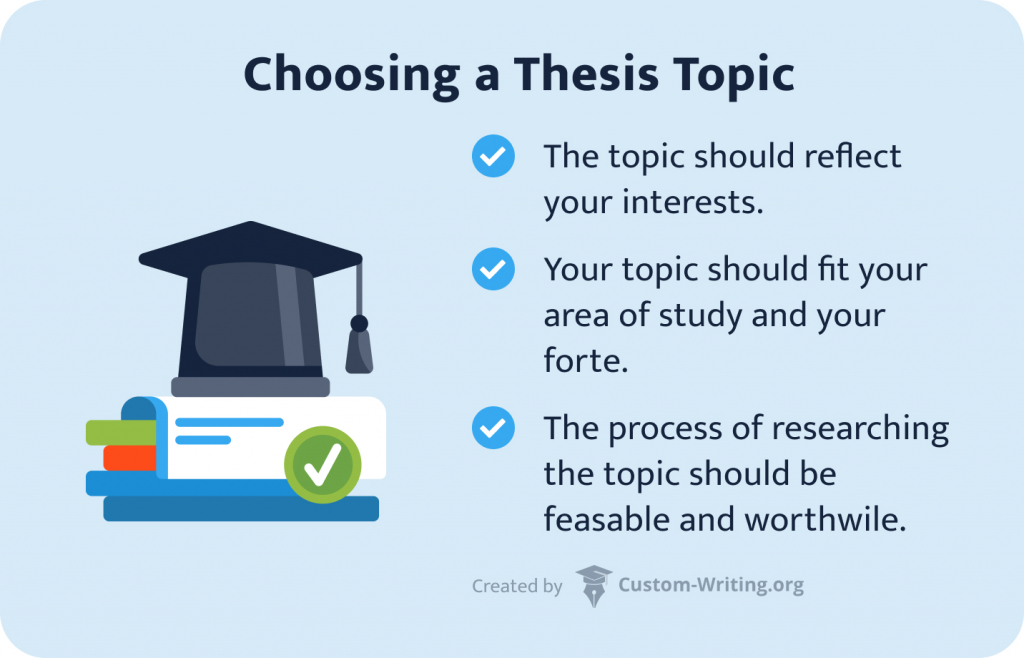
Wondering where to find the most current topic for your research? We’ve collected them below.
Computer Science Thesis Topics
Computers surround us everywhere. From hospitals to home offices, it’s impossible to imagine life without them. A doctorate in computer science can allow you many career opportunities!
- The latest developments in AI use for healthcare services . Healthcare in the US is expensive for its citizens. One way to reduce the cost is using computer algorithms. This technology research topic lets you explore how AI helps physicians with their tasks.
- Computer security for public institutions. Several allegations about hackers stealing data from the US government emerged in recent years. With this dissertation idea, study public cybersecurity. Also, discuss ways to improve cybersecurity practices.
- Visual recognition system architecture: real-time object detection. Discuss a system based on neural networks capable of detecting objects. Focus on the virtual environment. You can alter this trending topic in computer science for real-life settings.
- Blockchain application outside financial technologies. Analyze and discuss the implications of using blockchain systems outside of the fintech sector. For example, study its use for public services and in government agencies. This topic allows exploring ways of applying established algorithms.
- Machine learning and text structures. Discuss ways of visualizing text categorization. Focus on complex hierarchical structures of texts. This topic is suitable for postgraduates.
- Encrypted search: security, performance, and usage. Discuss the use of encryptions to protect data. Say how we can improve it for effective information search.
- Use of computers in education . Study how algorithms can improve learning. This topic can be altered for other fields. For example, choose AI in business or agriculture.
- Graphics and visual computing: current state and the future. By now, CAD programs are an integral part of every engineer’s tool kit. Your thesis can analyze the potential of those programs. What would improve their performance? Is there a chance that they will become obsolete?
- Multimedia databases parsing and indexing. Netflix and YouTube require technology to search across their multimedia databases. This dissertation can be a survey on best practices. Or, add a company name to the title and focus your research on it.
- AI Marketing: the use of algorithms to improve advertising. In the previous list of research question examples, you can choose a narrow marketing theme. Then, discuss the implications of such algorithms.
- Study computation of models for virtual environments .
- Cybersecurity challenges for automated vehicles.
- AI and vehicle automation: potential safety gaps.
- Computer graphics: perspectives for medical imaging.
- Research the use of computer algorithms for medical analysis.
- Discuss the role of bioinformatics in healthcare improvement.
- How is a computer-aided design used in creating automobile parts?
- Review the best practices for System Level Testing of distributed systems.
- Agile project management for software engineers.
- Software development risks analysis for successful employment.
- Study the security mechanisms for WLAN networks .
- Malicious botnets and network worms: an overview.
- What are the best practices in ICT systems development?
- Web-based document management systems using XML.
- Best algorithms for cluster generation.
- Methods for improving Open Web Architecture.
- Analyze software solutions for the increased energy efficiency.
- Protection of systems against terror attacks: a case study and analysis.
- New methods of risk management during software development.
- Analyze how Web space requirements are changing.
- Analyze how e-publishing is affecting libraries.
- New methods for studying the behavior of malware, viruses, and worms with the use of secure programming and runtime environments.
- Analyze redundancy and fault recovery in the 4G wireless network.
- Analyze the implementation and analysis of the optimal algorithm vs the heuristic algorithm for the generation of clusters.
- Analyze how full-text databases affect search engines.
Humanities and Art History Thesis Topics
Do you want to put your passion into words? Would you like to share your ideas with the world? Then pursuing a Ph.D. in the arts or humanities is the right path for you.
- The history of cinema : past and present. With this history dissertation topic, focus on how cinema developed. Explore the period starting from the first short films by the Lumiere brothers. Finish the discussion with modern-day Hollywood examples.
- Art or commerce: a case study of Hollywood films. Discuss the intersection between artistic expression and profit. This exciting arts topic focuses on modern cinema. You can use examples of art-house movies and modern commercially successful ones.
- Hollywood vs. Bollywood . Compare the two distinct film production centers for this art thesis. Next, discuss how local cultures impact Hollywood and Bollywood movies’ direction, genres, and plots.
- The use of visual tools in interior design . This dissertation topic is an intersection between arts and computer science. The focus is on how visualization tools help to create design projects.
- Racism in the 21st-century literature. Focus on how the narratives about racism have changed. Include examples from poetry and prose of this era. Compare it to works published in the past.
- The cultural aesthetic of Afrofuturism in literature. This dissertation idea allows you to explore the intersection of arts. Specifically, see how culture, philosophy of science, and history manifest in Afrofuturism.
- The social value of ecopoetry. Analyze how literature that focuses on ecological problems. Discuss environmental consciousness and environmental issues.
- Graphic novels: the best examples and implications for the development of literature. What does it mean when literary classics are converted into graphic novels? Incorporate the question if graphic novels can become part of the literary canon.
- Theater of the Absurd in the 1950s and 1960s. Discuss this form of theatrical art. Examine how it emerged and why it became influential.
- Post World War II art: cinema and literature. Use examples of films and literary works. Discuss major works of the post-WWII era and their themes.
- Futurism and the Czech avant-garde : the artistic connection between Europe’s East and West.
- Study the phenomenon of the hero archetype.
- Assess dancing as a form of meditation.
- Review the common elements of various African dances.
- Folk dances across Western Europe.
- Discuss regional dances and dance as a ritual.
- Animation as a modern art form.
- Research the art of glass-making and its prospects for the future.
- Analyze the cultural impact of The Beatles beyond music.
- Literature censorship in the US.
- Examine the intersection of ecology and arts.
- Heidelberg Project: is it a model for creating art in urban areas?
- Study kinetic sculptures of the 20th century.
- What characterizes social activism in 20 th -century rock music?
- Jazz in the 21st century: a potential for revival.
- The history of design in various periods of human existence (the ancient times, the Middle Ages, the Renaissance, etc.).
- Design as art.
- Philosophy of design.
- Separate branches of design ( interior design , car design, toy design, etc.).
- Stylistic peculiarities of a certain designer.
- Web design as a modern quintessence of design.
- Social significance of design.
- The birth of Communism as it relates to Stendhal.
- The relationship between politics and literature in the 19 th century.
- An analysis and case study of artists and art during times of war.
- How contemporary art is related to American suffering.
- Analyze of how racism relates to the family unit.
List of Science Topics for Your Thesis
A dissertation in science will probably require you to run numerous experiments. Many of them will probably go wrong. But the one that does work might be the next big breakthrough! Find a suitable research theme in the following list of topics:
- Bacterial injections for the treatment of cancer tumors. Injecting bacteria into tumors is a fairly new approach to treating cancer. Review the mechanism of action and evaluate the potential of this method for curing cancer.
- Computer imagining and AI for cancer detection. Examine how AI-assisted cancer screening improves accuracy. Include early detection implications and usage in hospitals.
- Ethics of organ donations and transplantation. With this dissertation topic in science, examine the ethics of encouraging people to donate their organs. Include the implications for medical research and practice.
- An epidemiological and molecular approach to cancer prevention. This topic idea suggests assessing the current understanding of how cancer develops as well as potential prevention strategies.
- Ways of speeding up vaccine development and testing. The COVID-19 pandemic has shown that the process of vaccine development is relatively slow. It takes a long time to ensure proper testing. You may discuss these issues in your biochemistry dissertation.
- The current state of research into ultra-fast rechargeable batteries. The topic of batteries and energy attracts lots of attention. With this topic, you can examine how to improve the design of aluminum-ion batteries. Include ways to decrease their charging time.
- Nanotechnologies in drug delivery: electrospraying. Current research shows the great potential of nanotechnologies. In particular, the electrospraying technique makes nanoparticle delivery more efficient.
- Prevalence of various Helicobacter Pylori virulence in a population. Conduct quantitative research and examine a sample of patients to determine the number infected with Helicobacter Pylori.
- The relationship between gut microbiota and the person’s appetite. Your research can explore the theory that the gut microbiome has varied effects on the person’s body. Review the implications for obesity treatment for different gut microbiomes.
- The age of antibiotics: is it over? Examine the use of antibiotics and the reasons for its decline. Discuss the evolving nature of bacteria that require remedies other than antibiotics. Include quantitative data in this dissertation for a specific type of disease.
- CRISPR method for studying human DNA.
- The study of human evolution: latest discoveries.
- Denisovans from Siberia: a new type of hominid discovered.
- Study the use of AI in archeology.
- Conduct a study of the Neanderthal genome sequence.
- What are the ways of improving solar cell efficiency?
- The carbon footprint of modern production: how do companies damage the environment?
- Research the use of cesium in solar panels.
- The era of supercapacitors: are we ending the use of batteries?
- Assess the efficiency of Robot Suits for people with permanent paralysis.
- Microscale medial robots: potential applications.
- Look into stem cell mobilization and its mechanisms.
- Discuss the ethics of automated cars.
- Space robotics: can we design robots capable of exploring space?
- Evaluate the efficiency and potential of lithium-based rechargeable batteries.
- Morality and ethics of stem cell research.
- Is behavior controlled or affected by genetics and to what level.
- A look at methods of improving risk factors post-stroke.
- Analyze of Chinese herbal practice and its relevance to conventional medicine.
- Analyze the effect schools have on childhood obesity.

- New methods of using existing data to gather information that is useful.
- An in-depth look at the factors affecting the decline of the immune system with age.
- Analyze of the potential effect of nanotechnology on health and the environment.
- Analyze of toxicity levels of inhaled nanoparticles.
- The usefulness of nanotechnology in curing some types of cancer.
- An analysis and case study of the treatment of patients who have experienced a loss of memory.
- Analyze the use of DNA typing of remains to identify missing people and the victims of crime.
- The response of immune deficiency diseases to the activation of T-cell subsets.
- The influence and importance of IT in the field of biomedicine.
Architecture Thesis Topics
Architecture is more than just aesthetics. That’s become especially clear ever since the doctrine “form follows function” gained traction. Whether you’re into baroque or Bauhaus, there’s plenty to discover about architecture.
- Religious architecture in the British Empire. Research the transformation of religious buildings and how it affected architecture in general.
- Modernist architecture in the USSR at the beginning of the 20th century. Compare modernist architecture in the USSR with other countries.
- Urban greening and its influence on buildings’ design. The dissertation proposal can include green roofs as the main point of research.
- Brutalism and its history in New York. Provide historical research of brutalism in New York and discuss how it affects modern architecture.
- Modern-day aboriginal settlements in Australia. Using examples from media and research, indicate how aboriginal settlements are perceived and handled today.
- Transformation of the urban design in the 21st century. Using London, Hong-Kong, and New York as examples, provide an in-depth discussion of changes in the urban design.
- The architectural history of Seattle. Conduct research and write a proposal that will compare different architectural styles seen in Seattle.
- Integration of culture in environmental design. In this proposal, you can use large cities in Asia as primary examples of the synergy between culture and architecture.
- The architecture of residential buildings during the second half of the 20th century. Choose one or several large cities (e.g., Berlin, Miami, Kyoto) as the basis for your research.
- The history of Moscow Avant-Garde. Use both Soviet and modern Russian research on Avant-Garde to present the topic accurately.
- Use of computer visuals in architecture.
- Review the trends in modern furniture design.
- Ecology and architecture: integration of green technologies.
- Discuss the multiculturalism of contemporary urban architecture.
- The history of architecture in urban areas of the US: the study of New York.
- Modern city design case study.
- Research ways of using wood in modern architecture.
- Commercial architecture: aesthetics and usability.
- Evaluate the design of municipal buildings in the US.
- Creativity in postmodernist architecture.
- How do we integrate smart home technology into architecture?
- Small scale homes: a study of growing interest in small housing.
- Discuss the use of lighting in building design.
- Study innovations in structural design in the digital age.
- What are the implications of inclusive architecture?
- Sustainable architecture: recycling spaces and materials.
- Renewable energy in home design.
- Assess open concept homes for American families.
- Conduct a study of family homes design.
- Research architecture suitable for middle-class families.
Thesis Topics in English Literature & World Literature
Was your New Year’s Resolution to re-read the 100 most influential classical works? Then you might want to consider writing a thesis in advanced higher English. Check out these engaging prompts:
- In-depth stylistic analysis of The Trial by Franz Kafka . Explain what stylistic devices Kafka used in his story.
- The influence of The Hound of the Baskervilles on the development of modern detective stories. Prepare several comparisons of The Hound with modern detective stories to pinpoint its influence.
- The Lost Honor of Katharina Blum : women characters in Heinrich Böll’s fiction. Using the book mentioned in the topic, examine how the German writer depicted women in his prose.
- Analysis of the terrorism portrayal in modern journalism: The New York Times case study. Pick several articles related to terrorism published in NYT and describe in detail how it is portrayed (keywords, images, etc.).
- A formalist approach to Dostoevsky: analysis of The Brothers Karamazov . Provide the reader with an explanation of the formalist approach and use it to analyze the novel.
- The depiction of sexual violence in young adult literature. Pick several YA novels published in the 2010s for your research.
- The use of repetition in Samuel Beckett’s Waiting for Godot . Analyze how repetition is used for emphasis and other effects in the play.
- Feminism and gender in Margaret Atwood’s Cats’ Eye . Review the book from a feminist point of view and discuss how gender issues are presented in the book.
- How does Phillip K. Dick use intertextuality in The Man in the High Castle ? Find as many references to other literary and historical sources as you can and elaborate how Dick uses them and for what aims.
- The influence of Steppenwolf on postmodern American literature: the contribution of Herman Hesse. Using Steppenwolf as the primary source, discuss what characteristics common for postmodern literature Hesse uses in this novel.
- How does racism manifest itself in classical literature?
- Discuss the oppression of women in The Handmaid’s Tale.
- Gender roles in The Miniaturist and A Doll’s House : a comparison.
- Moral ambiguity in David Harrower’s works.
- Literary techniques in the Perks of Being a Wallflower.
- The setting in The Murder in the Rue Morgue and its influence on the detective genre.
- Review the tropes first introduced in The Moonstone.
- Study the depictions of police’s work in Skinner’s Rule .
- Assess the influence of Victorian Gothic horror on popular culture.
- Social criticism in The Girl with the Dragon Tattoo.
- Analyze cyberpunk elements in Gibson’s Neuromancer.
- Themes of social equality in modern literature.
- Research the views on Native American writers in Nature’s Poem.
- Critique of contemporary children’s literature .
- Gothic elements in Charlotte Bronte’s works.
- The Strange Case of Dr. Jekyll and Mr. Hyde and Dracula : a comparative analysis.
- Terror in The Picture of Dorian Gray .
- Examine the connection of mental health and society in J.D. Salinger’s The Catcher in the Rye .
- Magical realism and romanticism in Perfume: The Story of a Murderer.
- How does the cut-up technique contribute to the narration in William S. Burroughs’ Naked Lunch?
Criminal Justice Thesis Topics
Are you a forensic science student who prefers research to actual police work? In that case, a dissertation in criminology is a great idea. This way, you can work on preventing crime from the comfort of your desk.
- Recidivism rates among underage Latino first-time offenders: a quantitative study. Research a group of first-time offenders of a particular age (e.g., 18 to 25 years old).
- A comparative analysis of the incidents of gun violence in the USA during the 2010s. Choose several prominent examples and compare them to each other.
- Troublesome statements: the role of witnesses in potentially false accusations. In this dissertation, you can write about the unreliability of statements, using documented examples.

- The patterns of drug trafficking in Germany’s largest cities: a case study of Berlin and Hamburg. Analyze the changes in these patterns in the 2010s.
- Money laundering and corruption in the United States in the 21st century. Using media reports, create dissertation research about corruption schemes.
- Mental health and self-perception of second-time sex offenders. Determine if their self-perception changes.
- School shootings in the USA: causes and risk factors. Using recent and historical data, analyze the cases of mass shootings.
- The influence of cyberbullying on suicide rates among Australian adolescents (13-17 years old). You can base your dissertation report on various research on cyberbullying published in Australian scholarly journals.
- Child abuse and its influence on serial killer’s perception of victims. Discuss interconnections between abuse and potential sadistic behavior.
- The history of forensic interviewing in the USA. Present research and practices that contributed to its development.
- Use of artificial intelligence for forensic investigations.
- Criminal behavior at a young age and its implications for the future.
- Drug use: pattern of recurring arrests among American youth.
- Incarcerated parents: the impact on the child’s perception of crime.
- Research the reforms of the US criminal justice system.
- Propose strategies for improving the juvenile detention system.
- Police officer’s abuse of power: analysis of reports.
- Race and criminal justice: the case of War on Drugs.
- What are the possible alternative forms of incarceration?
- A study of public perception of modern serial killers.
- Training of sniffer dogs.
- The implications of eyewitness testimony.
- Abuse in Hollywood: a case study of Harvey Weinstein.
- Bias against African Americans during investigations.
- A study of college violence.
- Legal implications of medical marijuana legalization .
- Ethics of criminal justice: the problem of confidentiality.
- Review the challenges linked with domestic violence investigations.
- Suggest ways of preventing crimes in schools.
- Gender bias during crime examinations.
Geography Thesis Topics
If you enjoy unveiling Earth’s secrets, this section is for you. Here you’ll find geography dissertation ideas ranging from studies of movement to regional phenomena.
- Species that became extinct in the 20th century: qualitative research. Address the human influence on various species.
- Current issues in the exploration of Arctic. Discuss difficulties and specifics of such explorations.
- A comparison of urban back gardens in the USA and the UK. You can compare their design and other features (for example, vegetation used for decoration).
- The causes and outcomes of floodings in the USA in the 2010s. Address climate change as one of the leading causes.
- Prevention of ecosystem changes with modern technology. Provide various examples of how technology is used to sustain ecosystems.
- Changes in travel destinations in the 2000s: a comparison of the USA and Canada. Demonstrate what changes in preferences were documented in these countries and show what destinations were especially popular.
- The perception of environmentally friendly technologies and their impact on the environment by citizens of large metropolitan areas: a case study of Miami. Explain how various projects based on environmentally friendly technologies are launched in Miami.
- A negative impact of global warming on weather conditions in Iceland. Discuss how tourism in Iceland is affected by these changes.
- The influence of industrialization on climate change. Address the causes of climate change, using industrialization and its consequences as a basis.
- Compare Greenfield and Brownfield land use for construction projects.
- Investigate the significance of red salmon for Kamchatka.
- The social impact of climate change : a study of migration patterns.
- The potential of community gardening in underprivileged neighborhoods.
- Study the link between the strengths of hurricanes and climate change.
- What can be done to stop gentrification in your community?
- Evaluate coastal tourism, its effect, and implications.
- The impact of reservoir locations on water quality.
- How did industrialization affect the development of Chicago?
- Study soil pollution levels in your community area.
- Conduct an analysis of air quality in your city.
- Eco-tourism, its history, and perspectives.
- Differences in soil chemistry across several locations.
- The impact of organic farming on water quality in your area.
- Compare the sustainability of organically vs. conventionally farmed tomatoes.
- Research air pollution levels and data on airborne illnesses in your area.
- What’s the relationship between rock climbing and cliff vegetation?
- Study the changes in soil fertility upon volcanic eruption.
- How does the Chernobyl disaster continue to affect the surrounding area?
- Determine the patterns of floods in a particular area of your choice.
Sociology Thesis Ideas
Sociology studies how humans live together. A dissertation is a great way to dive deeper into a particular subject. You can get as specific as your heart desires! Check out our sociology thesis topics:
- Single parent stigma and its influence on family’s quality of life and parent-child relationships. Present examples from recent research that illustrate how the dynamics of these relationships change over time due to stigma.
- Women empowerment in Saudi Arabia in 2000s: breakthroughs and challenges. Discuss how this empowerment affected legislation and women’s rights.
- Long-term alcohol addiction and self-perception in young adults. With the help of research, demonstrate whether self-perception of these adults transforms significantly due to their addiction.
- Adoption and its influence on parent-child relationships. Present and discuss challenges that such families face.
- Comparison of traditions related to family dinners in the USA and the UK. What specific differences are there and how can they be explained?
- Influence of the emo culture on suicide rates in high school students. Address the influence of such cultures on adolescents’ behavior.
- The rates of secularization in elderly individuals living in urban and rural areas. Compare the rates and explain why they are different.
- Influence of forced outing on transgender individuals and concomitant changes in their quality of life. Explain the effects of forced outing and why this impact is dangerous.
- Comparison of anti-nuclear movements in Germany and Japan in the 21st century. Explain in detail what differences and similarities are prominent.
- Performance rates of teenagers in schools in low-income neighborhoods: a case study of Boston schools. When writing your dissertation proposal, consider various factors (poverty, limited access to technology, etc.) that affect performance rates of these teenagers.
- Black Lives Matter movement’s immediate impact on racism.
- Research causes of minority bias in the US.
- Affirmative action and its impact on the perception of varied racial groups.
- The impact of religion on people’s attitudes towards race.
- Review the challenges of the US LGBT community.
- Bias towards transgender studies.
- Social activism against gender discrimination in the 21st century.
- The impact of social assistance in schools on a child’s future.
- Research the changes in education after WWII.
- Analyze scholarship policies in the US.
- The impact of student debt on youth’s perception of education in the US.
- Outcomes of public vs. private schools: a comparison.
- Research the preservation of culture in American immigrant families.
- Applying Marx’s conflict theory to social justice movements.
- Assess changing trends in social norms in a country of your choice.
- Attitudes towards prejudice among people of different social backgrounds.
- Comparison of women’s rights in Western and Middle Eastern countries.
- The impact of capitalism on one’s social values.
- How does capitalism benefit society across multiple post-soviet countries?
- Compare healthcare access in autocracies vs. democracies.
💡 Dissertation Topics for Ph.D. students
Below you’ll find a list of excellent dissertation ideas in different fields of study. They are more difficult than thesis topics and require more research. Jump to the section that interests you and find the topic that suits you best! But first:
What Makes a Good Ph.D. Topic?
Usually, universities would expect your dissertation to be original and relevant in the field of the research. Moreover, it would be worthwhile if it has the potential to make a change.
This checklist will help you see whether you’ve made the right choice. Your dissertation topic is good, if:
- You have an opportunity to research it fully. You need to know that there is enough data and a theoretical basis. Do some prior research to understand if you will be able to answer all your dissertation questions.
- You can fill the gaps in the existing knowledge. Your research matters if you can provide some new information that contributes to the field of your studies.
- Your dissertation title is catchy. Try to make it worth the reader’s attention from the first glance.
- You can evaluate how much time you need. It is vital to understand all the stages of your research and the challenges you might face to plan your work.
- You know the subject well. You will need to explore your topic in-depth. It’s good to have some previous knowledge about it. Starting the research from the very basics will take more time and effort.
- You have enough resources to investigate it. Both time and money matter in this case. You need to do high-quality research and meet your deadlines.
Dissertation Topics in Education
Learning is a lifelong experience, and the importance of schools cannot be overestimated. Research in this area is critical to improving education standards. Have a look at these topic ideas to get inspired:
- Gamification as tools for enhancing learning abilities: theory and practice. Many studies have been conducted on different learning approaches. For young learners, engagement is as critical as the outcome. Therefore, this work focuses on gamification and its effect on children’s improvisation and learning.
- Studying the connection between classroom quality and the learning outcome in kindergarten. Children are strongly affected by their environment, especially when it comes to learning. This dissertation topic example is all about looking into different classroom settings and their effect on kids’ learning outcomes.
- Evaluating the process of implementation of inclusive education in the US. Professionals argue that inclusive education carries multiple benefits for all students (not just those with limited abilities.) However, it is quite a challenging process to implement all the changes.
- Factors influencing the decision to transfer to the higher education abroad. In this work, you can focus on finding out the reasons for such a decision. Why do undergraduate students choose to leave their home country? What are the most important factors?
- Online education vs. traditional face-to-face lessons for adult learners: compare and contrast. Online courses have their own benefits. However, would adult learners prefer them to in-person classrooms? How does it affect their learning and motivation?
- How does working as a taxi driver and navigating change a person’s brain?
- To what extent can reality television be disempowering for students?
- The role of homework in the lives of immigrant adolescents.
- The impact of teachers’ shocking behaviors in fostering students’ creativity.
- The determinants of flossing behavior in college students .
- The classification of drinking styles in the college-age population.
- Integrating the computer into the curriculum: why you can’t simply plug it in.
- The preconditions for serious music-making avocation in computer science students.
- Adult graduate difficulties with learning new technologies.
- The effect of academic performance on the health of students.
- The impact of mathematic coaching on students’ self-esteem .
- The influence of internet on the emotional maturity of students.
- Academic achievements of students who decide to become teachers.
- Is it true that students are more likely to do homework given by good-looking professors?
- Informal learning in rural areas via social networks.
- Educational blogging for professors: the social networks of educationists.
- Does learning existentialism cause suicides?
- Is it possible to reduce summer learning loss without students’ consent?
- Can we reject classical math and do it at the same time? Yes, we can.
- What are major career prospects with a degree in Liberal Arts?
- Using electronic games in museums as an effective education tool.
Business Dissertation Topics
There are many things a business administrator should keep in mind. Finances, marketing, and development are just the tip of the iceberg. So, the choice of topics is practically endless. Check out this selection to narrow down the possibilities:
- How are business strategies adjusted to the globalization process? Small businesses’ perspective. Globalization means huge and profitable opportunities. To seize them, all businesses and companies should make some changes in their strategies. Investigate what would be the best action plan for them.
- Cultural changes and the effect of feedback in an international company: a case study. Choose a multinational company. Study the impact of feedback (both from the employees and customers) on its organizational culture changes. What reaction does it provoke in the company?
- Human resource management approaches in international non-profit organizations. In this study, look into the strategies HR managers apply in non-profit organizations. One of their main responsibilities is to monitor the performance of the employees. However, at the international level it becomes more difficult.
- Leadership and organizational culture in making decisions about business strategies. In this research, you study the influence of the organizational culture on leaders. In the case of trying to initiate changes in the business strategy, how is a leadership decision taken?
- The role of “foreign direct investment” in companies in developing countries: a case study of a large business. For this paper, pick a suitable company first. Aim for large companies in developing countries. Then conduct research and find out what strategies they have for foreign direct investments.
- COVID-19 pandemic’s effect on workplace management in small businesses . The COVID-19 pandemic caused many companies to readjust their HR policies. For instance, they allowed their staff to work from home. Research this phenomenon in your thesis.
- Social entrepreneurship for large companies. If you want to make the world a better place, social entrepreneurship is a suitable method. We usually associate it with small start-ups. But what about large companies? With this topic, you can research how the concept works for big firms.
- How innovation affects demand in technology-driven businesses. This MBA dissertation topic combines business studies and technology. Examine how companies create products for establishing markets.
- Management strategies in times of COVID-19: a case study. The pandemic has forced companies to use Zoom , Skype, and messaging instead of regular meetings. Review how executives can apply traditional management models in the digital space.
- The impact of burnout on employees. Interview staff members and determine how burnout affects performance. Include the name of a company or industry in your dissertation’s title.
- Tourism management in the Middle East.
- How do natural disasters impact the demand for essentials?
- Compare and contrast Asian and American leadership styles.
- How does fluctuation in the stock market impact business operations?
- The art of delegation: how to do it effectively and when to avoid it.
- How can one efficiently lead a company when unforeseen circumstances occur?
- What factors determine employees’ work satisfaction?
- Study the link between a company’s success and innovation.
- What can business managers do to bridge the gap between generations?
- Research the benefits of global and local brand management.
- What causes changes in Chinese business culture?
- Choose a small business and analyze its strategy.
- Organizational changes : what factors impact transformation?
- Internet banking : barriers to usage.
- Create a business plan that is focused on a specific issue.
- Conditions necessary for quality management in MNCs.
- The role of E-commerce for food retailers.
- Conduct a case study with the purpose to analyze one or several social phenomena.
- Workplace ethics in small businesses.
- The phenomenon of remote working and how it is affecting businesses.
- Comparison of Generation X and the Millennial Generation.
- Managing the Millennial Generation.
- Current trends in consumer behavior in relation to advertising.
- Analyze which countries margin financing is effective and why.
- Analyze the macroeconomic factors affecting exchange rates.
- An empirical analysis of the impact of organizational performance and leadership .
Law Dissertation Topics for Ph.D. Students
Legal science is not dull as one may think. It’s crucial to evaluate laws at any point in time. Do they fit the current norms? Does something or someone need more protection than before? If you want to garnish your legal education with a Ph.D., here are some topic suggestions:
- Trust law: the circumstances when fully secret and half-secret trusts are necessary. Find out what are the principles that dictate the enforcement of the trusts. There are specific circumstances that determine whether creating trusts would be adequate and relevant. Make sure to take them into consideration.
- Termination of employment in case of employees tested positive for HIV/AIDS. Your task would be to conduct research and see how HIV/AIDS employees are influenced in the workplace. The most common issues are discrimination and termination of employment.
- The influence of the Global War on Terrorism on international criminal law. When the US launched the campaign against terrorism in 2001, international criminal law faced some changes. You can study the most significant changes that have been made.
- The level of effectiveness of the US copyright law in relation to the rights of users. It’s an empirical research topic that would require collecting lots of data. Try to find some cases when the users were left cheated by copyright law. It would bring some diversity to the research and make it more interesting.
- Study the effect that the US immigration policy has on education right now. Educational institutions are also required to adjust to changes connected with immigration. Different requirements and different curriculums are implemented to fit their needs. You are about to look into this issue.
- Select a country and analyze its worker protection laws. Compare the rights and obligations of employees in two countries of your choice. What potential improvements can solidify employee rights?
- Protection of minorities, legal precedents. Minority rights are becoming more and more relevant. This topic allows you to discuss how laws can be changed to reflect it.
- Regulation of cryptocurrency. Bitcoin and other cryptocurrencies allow for anonymity. Besides, they are not regulated by any state. In your thesis, you can analyze cryptocurrency regulations.
- Fake news : legal responsibility. Review how the United States legal system approaches disinformation. Focus on false publications on news resources. Another possible topic is improvements to defamation laws.
- Freedom of expression : a case during a pandemic. This topic is about false information in times of COVID-19. Examine how a state can balance freedom of expression with the spread of false information. Focus on this disease and the fake news about it.
- Legal practices for preventing possible future pandemics.
- Research ways of online journalism protection.
- International law vs. the right to self-determination: comparative case studies of de facto states.
- Review the history of fiscal laws in America.
- Limits to freedom of expression in the US legal system.
- Enforcing regulations concerning domestic violence.
- Study criminal responsibility for drug possession in the US.
- Criminalization of violence against women.
- Review the legal framework for addressing foreign involvement in elections.
- What was the government response to the COVID-19 pandemic?
- Health standards for immigrant detention centers in the US.
- Research the loopholes in the US immigration laws.
- Birthright citizenship in the US: pros and cons.
- 1951 Refugee Convention: is it obsolete?
- Illegal immigrants and their rights in the US justice system.
- How criminal laws have been impacted around the world by the war on terror.
- Choose a country and analyze their policies on discrimination.
- Evaluate the protection given to minority shareholders as dictated by company law.
- Provide a critical analysis of the law of omissions liability.
- Investigate and analyze complaints filed in the criminal justice system.
- A critical analysis of the reform of homicide laws.
- The morality and impact of euthanasia and how Canada sets a precedent.
- A detailed analysis of gender and race profiling of suspects in the criminal justice system.
- Analyze the right to bear arms relative to the context in which the law was written into The Constitution.
- Create case studies that represent a review of criminal negligence related to the Corporate Manslaughter and Corporate Homicide Act 2007.
Psychology Dissertation Topics
The mysterious ways of the human mind offer many research opportunities. Psychology encompasses sub-fields such as behavior and cognition. Whatever your area of expertise, you’ll undoubtedly find something interesting in the list below.
- The current effect of the “price ending” method on the consumers’ behavior . Nowadays, everybody knows the most popular trick that shops pull to make customers buy the products. However, does understanding it make it easier to resist it? Is this psychological trap still working?
- Burnout at the executive positions in massive US corporations: is it possible to prevent? The phenomenon of burnout is the most common issue that employees face nowadays. But there are ways to detected it at an early stage. Could they be used to predict and prevent this problem?
- Mindfulness practices and their influence on students’ learning abilities at the top universities (e.g., Harvard). Mindfulness is proved to be extremely useful in overcoming stress and anxiety issues. However, does it affect the learning outcome of the students who study at the best universities in the world?
- The individual struggles with gender issues and their impact on global gender inequality. Everything always starts with a small thing. For this paper, study the relation between some individual cases and the global issue. How do personal struggles contribute to the worldwide movement for justice?
- The positive influence of irrational beliefs on mental well-being. In psychology, irrational beliefs are a set of values and opinions that people believe in despite rational evidence against them. However, what positive effect can they bring?
- Ways of raising awareness of mental health problems. Mental health has been discussed more openly in recent years. Review how this open discussion affects views on personal mental health. As another idea for a psychology dissertation topic, research a specific illness.
- Student burnout and ways to prevent it. Focus on the problems students face and what strategies can reduce their stress.
- Pandemic and mental health. The COVID-19 pandemic forced many people to be in isolation from social contacts. Review the potential effects of this practice on people’s well-being. Discuss possible strategies for supporting mental health during possible future pandemics.
- Weight, self-image, and mental health. A clinical psychology thesis can focus on the psychology behind excess weight. Discuss how weight affects a person’s perception of self. Assess implications for clinical psychologists who work with overweight patients.
- Social media vs. reality: normalizing real people. Review current efforts of social media accounts in normalizing body image. Explain how this can reverse the damage that edited photos have on mental health.
- How does gender bias affect mental health in America?
- What factors affect women’s self-esteem in the workplace?
- Specifics of transgender mental health.
- Research the effect of immigration on mental well-being.
- Study the psychology of racism and ways to combat it.
- What distinguishes the mental health of minorities in the US?
- Research the psychology of dissent in the Soviet Union.
- The connection between stress and overeating: latest developments.
- Assess the role of social support for losing weight.
- What’s the role of prejudice in politics?
- Assess the role of endurance in combating stress.
- Developing hardiness: strategies and exercises.
- What’s the effect of emotional resilience on mental health?
- Helping teenagers overcome stress via relaxation techniques.
- Look into the perception of anger and its effect on mental health.
- Understanding the function of the prefrontal cortex in terms of how it is connected to other parts of the brain.
- Understanding how the prefrontal cortex makes us human.
- How emotional and anxiety disorders are connected to social cognition that is impaired.
- Analyze the ability of an MRI to determine brain function.
- Analyze the relationship between emotional and episodic memory.
- A comparison of the plasticity of the child’s brain and the adult brain.
- Analyze the continued relevance of Piaget’s theory of cognitive development.
- An in-depth look at the social intuitionist model and how it relates to the emotion and reason involved in moral judgement.
- How the evolution of the human brain can be understood in terms of children cognitive development.
- A demonstration of the multi-dimensional nature of schizophrenia.
- How rational thinking and impulse contribute to decision-making.
- A systematic analysis and review of the psychology of religion.
- How exposure to nature affects happiness.
Nursing Dissertation Topics
A nurse’s work is hard. Unfortunately, they rarely get the credit they deserve. With a Ph.D., you could become an advocate on the problem. Or you could concentrate on optimizing their work environments.
- Exercise, changes in lifestyle , and self-tracking for diabetes prevention and management. Center your research on different lifestyle changes (exercise, reduced smoking and drinking) and explain how and why it prevents diabetes.
- Influence of stigma related to HIV/AIDS on representatives of ethnic minorities: a case study of Native Americans. Using research, provide compelling evidence of how Native Americans are stigmatized and discriminated against.
- Chronic illness management at home: recommended evidence-based practices. Using current nursing and other professional research, discuss how adults and seniors manage chronic and autoimmune diseases.
- Depression and stress and their relation to preterm births in first-time mothers. Collect several articles about the issue and using their conclusions show how depression causes preterm births.
- Burnout in nurses: factors that cause it and practical solutions for prevention. Present outcomes of burnout (decreased performance and concentration, subpar workplace environment) and illustrate how it affects hospitals on a more significant scale.
- Public health: community-based measures to prevent morbid obesity. In this research, you can list various methods that include exercise and education and explain in detail how they prevent the spread of obesity.
- Risk factors and injury rates in psychiatric nursing. Present statistics on different types of injuries in psychiatric institutions.
- Cultural diversity and inclusion in nursing education. When researching diversity, make sure you are using examples of different minority groups’ perception of education.
- Euthanasia legislation in the USA: ethical issues and debates. Provide a thoughtful discussion of ethical and legal issues surrounding euthanasia.
- Organizational climate and its influence on perceived patient safety. Your study should focus on the importance of positive relationships between staff members, and its influence on the prevention of medical errors.
- Dietary practices and their influence on the quality of life in patients with systemic lupus erythematosus. SLE is a complex disease that requires a multidisciplinary approach. Describe nutritional research approaches to SLE.
- Fluoride application training in dental nursing.
- Describe the specifics of nursing care for patients with diabetes.
- Assess gender disparity in nursing research.
- Study nurse burnout prevalence in neonatal care in your community.
- Nursing staff advising DASH diet: effects on patients’ blood pressure.
- What are the challenges of asthma management for nurses?
- Nursing for autistic patients: the best strategies.
- Racial differences in nursing care: a case study.
- Evaluate nurses’ role in pain management for patients with dementia.
- Study the connection between nursing staff turnover and burnout.
- How is the role of a nurse changing in the modern healthcare system?
- Review nursing practices for managing elderly patients.
- A holistic approach to obesity management in nursing.
- Describe the specifics of nursing in rural areas.
- Physical activity and mental health: a nursing case study.
- Discuss nursing pain relief strategies for general care.
- Determine the ethical implications of nursing malpractice.
- Nurses consultations for spinal cord injuries.
- Nursing in an urban setting: challenges and prospects.
- What are the specifics of pain management in obstetrical nursing?
Marketing Dissertation Topics
Good marketing is what made you buy that product you didn’t know you needed. Marketing needs plenty of scientific research for it to be successful. You can contribute to this effort with one of the following topic ideas:
- Compare and contrast the effectiveness of traditional and digital marketing in the last five years. Marketing moves towards digital campaigns more and more every year. Though, traditional marketing still exists, of course. Your task is to compare every aspect of these two types in the span of the previous five years.
- The specifics of the relationship marketing and its influence on the loyalty rates among customers: a case study of fast-food chains. Take a few fast-food chains to conduct this research. Then analyze their relationship marketing strategies. There should be a correlation between the methods they use and the loyalty of their customers.
- Direct marketing and artificial intelligence: how do companies use it? The industry of marketing couldn’t have missed the opportunity to use the latest technologies for their benefit. Artificial intelligence helps some companies gain a competitive advantage. Find out what those benefits are.
- Collectivism and individualism : how does culture influence supermarkets? There are some apparent differences in cultures when it comes to shopping. Each shop owner has to implement a specific marketing strategy for targeting the customers. Work on aspects that make those strategies successful in different cultures.
- The strategies that make personalized products sell effectively. Everybody loves customized products, but it seems like not everybody is willing to share their data to get it. Therefore, businesses are forced to work it out. This research looks into marketing tools and methods they use to sell personalized products.
- Influence of online shopping apps on impulsive buying behavior . Using prominent examples such as Amazon and eBay, elaborate how apps affect customer’s decision to purchase an item through recommendations.
- Product design and its impact on consumer’s purchase decision. When preparing this thesis topic, consider using examples of large corporations such as Apple or IKEA to prove your point.
- Customer loyalty : the importance of satisfaction and loyalty programs. Conduct research using available surveys on satisfaction and draw conclusions from these statistics.
- Ethnic differences and their impact on brand perception. This research can review the types of products that target White or Black Americans specifically.
- Preferences for green products: analysis of the income’s influence on consumer decisions. Compare what households are more likely to prefer green products.
- Shopping habits of Muslim consumers in the USA: qualitative research. Here, you will need to do research by engaging Muslim Americans in your study; you can use interviews or surveys for this topic.
- Social media and its impact on the promotion of small business. Make sure your reader understands how social media can promote or negatively present small business through customers’ comments.
- Does globalization make preferences of customers from different socioeconomic backgrounds similar? Interview people from lower, middle, and upper class and discuss the preferences of American households.
- Social media usage by international companies: a case study of Electronic Arts. Study the influence of customers’ reviews and opinions on EA’s sales.
- Consumers’ perception of transaction safety in online shopping applications. Discuss how consumers learn to differentiate between reliable and unreliable apps for payments .
- Marketing high tech products: a case study.
- Study changing marketing techniques during the COVID-19 pandemic.
- The future of big data uses in marketing.
- Conduct a comparative analysis of offline vs. online advertising .
- Explore the relationship between marketing strategies and sales.
- Holiday marketing strategies in the 21st century.
- Is marketing tailed towards model devices effective?
- Study the rise of influencer marketing.
- Review the newest trends in digital advertising.
- Brand management in 2020: an analysis.
- Assess the effect of advertising on consumer behavior.
- Targeted ads: are they efficient?
- How did marketing change during the COVID-19 pandemic?
- Assess brand management’s contribution to consumer loyalty.
- Impact of social media marketing on brand perception.
- Google Analytics insights for marketing campaigns.
- Marketing for minority populations.
- Youtube marketing: the effectiveness of videos for brand promotion.
- How does partnering with influencers impact brand perception?
- Social influencer marketing for SMEs.
History Dissertation Topics
History is written not only by the victors but also by history students. Your dissertation can shine a light on understudied cultures. Or perhaps you want to focus on how a specific event impacted the world. Find inspiration among the following dissertation questions and ideas:
- The historical context of the creation of Guernica by Pablo Picasso . War wasn’t the only inspiration for Pablo Picasso during the process of making Guernica . In this paper, you would look into the environment of the artist and try to identify what else brought him to the creation of this masterpiece.
- Bismarck and radical nationalism: what influenced the political state? For this research, you would study the underlying reasons for German Nazism before the beginning of World War II. What factors gave it a start when Otto von Bismarck was in charge?
- The rise of Bollywood: historical context. This paper focuses on the success of Indian Bollywood movies in the 1930s. You would need to look into the events that made those movies famous in the whole world. Don’t forget to mention the social views of Bollywood movies.
- The influence of secrecy in the technology intervention during World War II. You would study the role that the US Patent and Trademark Office played in the development of special war technology . Secrecy helped to keep it away from the public and enemies. How did it influence the war?
- Italian prisons in the 19th century: how were they managed after Unification? This paper would require you to study documentation on the management system prison used in Italy at the beginning of the 19th century. You should try to find some practices that might have been socially harmful.
- Gender perceptions in the Middle Age. When preparing the dissertation, use both historical and literary sources to show how gender was presented.
- Secularization in the American South during the post-war period. Provide a detailed discussion of secular societies forming in the South after the 1940s.
- Representation of Jewish history in contemporary art: a case study of Art Spiegelman’s Maus . Using the comic book as the primary basis, explain how Jewish culture and history are presented there.

- The history of medieval warfare and its influence on Modern Era warfare . When constructing this thesis, make sure you are using both historical and current research to provide details.
- American-British relations during the Cold War Era . Explain how the Cold War Era changes these relations and what has affected it the most.
- Germany’s foreign relations during the 1980s. Present a detailed overview of different foreign relations (e.g., with the USA, the USSR, the UK) Germany had during this period.
- The financial crisis in the USA in 2007-2009. Using research and media sources, explain to the reader how the crisis is still affecting the USA.
- The development of Austrian identity after World War II. In this case, you can use both historical evidence and Austrian literature that provides personal opinions of writers and artists on the issue.
- The impact of the Great Depression on the American involvement in the World War II. To show your understanding of historical processes, demonstrate how the Great Depression affected the USA’s perception of WWII.
- How I stopped worrying and learned to love the bomb: the development of nuclear warfare in the 20th century. Discuss the development of nuclear warfare in the USA and the USSR.
- What was the role of China in the Cold War?
- How did the Spanish Flu affect the pandemics that followed it?
- Determine the influence of the stock market crash in 1929 on the World Wars.
- First Battle of Marne’s impact on the outcomes of WWI.
- Tool usage and creation: Aztecs vs. Mayas.
- How did the enlightenment philosophy impact the development of the natural sciences?
- The effects of Christianization in sub-Saharan Africa.
- Assess the role of slavery in the US civil rights movement.
- Study the history of LGBT rights establishment in the US.
- What are the origins of slavery in Africa?
- The Moon Landing and its impact on space exploration.
- Explore the role of the Bible in Jewish history.
- The US’ involvement in WWII.
- The aftermath of WWII: major historical events.
- Research the link between the Mexican-American War and the Gold Rush.
- Cold War insights: lessons from the Suez Crisis.
- Explore the role of democratization in the Soviet Union collapse.
- Global cooperation in early modern Europe.
- Study the legacy of the arms race.
- How did the First Ladies influence life in the 20th century America?
Dissertation Topics in Management
Companies and employees alike benefit from well-thought-out management strategies. So, a thesis in management has the potential to improve work environments even further. Kickstart your research by choosing one of the following topics:
- Ecotourism in Canada: issues and trends in small business. Explain issues that arise in ecotourism with climate change.
- Management ethics: how social media affects employees’ privacy and organizational climate. Present examples of negative and positive influence.
- Leadership styles: a comparison of democratic and autocratic leadership. Discuss what leadership style should be chosen to rule various companies, depending on their business plan.
- Political risk and its influence on emergency management. Explain how political crises affect and shape emergency management.
- Cultural diversity and its impact on employees’ satisfaction and commitment. Show what advantages and disadvantages there are in cultural diversity.
- Economic growth and unemployment rates in Australia during the 1990s: a historical perspective. Explain the causes of economic growth and unemployment.
- Challenges in human resources management working with millennials: qualitative research. Discuss what particular challenges HR managers face and how they can be addressed.
- The significance of organizational routines in international corporations: a case study of Google. Conduct research on the importance of routine and its impact on performance.
- Computer skills and management: the effectiveness of computerized management information system in rural areas. Describe how digital management can be effectively applied in companies working in rural areas.
- The history of digital rights management in the USA. Present the changes in the field during the 1990s-2010s.
- Analyze the best leadership styles for SMEs.
- Examine the changes entrepreneurship underwent in the past decades.
- How do leadership styles relate to work satisfaction?
- Overview of business negotiation methods using technology.
- Ways of integrating corporate social responsibility (CSR) practices.
- Discuss the specifics of airline companies’ management.
- Choose a theory of motivation in the workplace and make a case study on it.
- Study change management in SMEs in times of a crisis.
- Managing diverse workforce: a qualitative analysis.
- Use of employee voice in US companies.
- Research the relationship between the organization’s goals and a manager’s behavior.
- What are the best current practices in public administration?
- Applying strategic human capital principles in practice.
- The study of female CEOs in a country of your choice.
- Employees’ perception of change management : a quantitative analysis.
- A study of employees’ resistance to change.
- What’s the correlation between a CEO’s leadership traits and employee motivation ?
- Workplace risk management : a study of psychosocial hazards.
- Conduct a quantitative study of the gender pay gap for CEOs.
- Research the relationship between management style and employee productivity .
Qualitative Dissertation: Ideas for Proposals
If you want your thesis to be more practical, you’ve come to the right section. Common approaches for qualitative dissertations include researching case studies, surveys, or ethnographies. Because of this, fieldwork will be an integral part of your doctorate journey.
- A comparison of teaching techniques that targeted children with autism in the 20th and 21st centuries. Provide a detailed overview of techniques and explain how research affected them.
- The development of cognitive-behavioral therapy and its effectiveness in patients with eating disorders. Present the history of CBT and use recent research to demonstrate its effectiveness.
- Ageism and sexism in international organizations of the fashion industry. Describe how the fashion industry defines what it means to be “young and beautiful.”
- Addressing sexual harassment at the workplace : the influence of organizational policies on targets’ decision to file a complaint. Explain what policies can support the target and what can prevent such decision.
- Strategies to eliminate bias in self-evaluation reports of employees. Using research in HRM, outline the best strategies that are currently used to avoid bias.
- Post-cancer therapy: issues and trends. Present and discuss various trends, the research behind them, and the effectiveness of different types of therapy.
- A family history of abuse and its influence on drug use in adults. Explain how abuse can provoke addiction in the future.
- The importance of trusting doctor-patient relationships on patient’s medication adherence and management of a healthy lifestyle. Describe how such relationships negatively or positively affect a patient’s decision to take medicine as prescribed.
- Barriers to the acquisition of social support among young men and women veterans in the USA. Discuss mental and physical disorders as major barriers.
- Single mothers’ perceptions of breastfeeding in public places: qualitative research. Conduct interviews to find out their opinion.
- The impact of online learning on student’s academic performance.
- A study of the youths’ perception of learning smartphone applications.
- Research the issue of gender bias in college education.
- Student’s perception of the mental health support and impact on campus.
- Perceptions of charter school education in the 21 st century.
- Discuss homeschooling and its effect on a child’s socialization.
- What’s the impact of cyberbullying on teenagers’ mental health?
- How inmates perceive alternative forms of incarceration.
- Gun violence from the perspective of victims.
- Research bias towards video games as an art form.
- In what ways are minorities disadvantaged in America?
- Evaluate cooking as a therapeutic exercise.
- Assess the link between a principal’s leadership style and the school’s rating.
- The effect of online counseling on patients’ mental health.
- Perception of mental health stigma among students.
- How does gig economy re-define work?
- The implications of freelancing in the 2020s.
- Opinions about a 6-day work week in your community.
- Assess the process of adaptation to working from home.
- Conduct a research study of views on the BLM movement outside the US.
Quantitative Dissertation Proposal Topics
Some scholars just love working with data. Are you one of them? Then you’ll probably enjoy quantitative research. If you’re into finding patterns and making predictions, here are some enticing topics:
- A study of a major city’s livability index. Choose a city and assess whether it’s well-designed or not.
- A quantitative study of biofilms in technology. Discuss methods of using biofilms in technology. Include a list of recent advances and new tools.
- A quantitative study of teachers’ perception of online learning. This topic prompts you to use an evaluation scale.
- An assessment of a link between product reviews and intention to purchase. Study the effect online reviews have on potential customers.
- Immigration and its connection to crime statistics. Analyze data on immigration to the US and the number of violent crimes. Determine the relationship between the two phenomena.
- The relationship between obesity and occupation. Assess the BMIs of participants of different professions. Then, test the results for a correlation and discuss its implications.
- A relationship between nurses’ knowledge of diabetes management and patient satisfaction. Assess the nurses’ knowledge about diabetes and compare the results with patient satisfaction scores. Thus, you can determine if expertise translates into better care.
- A study of the economic impact of the COVID-19 pandemic on SMEs financial operations. With this qualitative dissertation proposal in business and management, choose a small company. Analyze its financial data pre- and post-pandemic. Include a discussion of financial management during pandemics.
- A study of millennials’ pet ownership. Determine the percentage of millennials who have pets. Compare these patterns with previous generations.
- Economic growth and urbanization. Compare the empirical data about the state of economics and the number of people living in cities.
- Determine how urbanization affects bacterial community compositions.
- The economic impact of immigration on SMEs.
- Study the rates of crimes in the US in relation to nonviolent crimes.
- How do various teaching styles affect learning?
- Compare overconfidence in CEOs of SMEs and corporations.
- How does inclusive language influence social behavior?
- Assess consumers’ satisfaction with online banking in your area.
- Evaluate crude oil price prediction methods.
- Is there a link between smartphone use and mental illness?
- Correlation between eyewitness identification and memory.
- What are the attitudes towards AI development among women?
- Determine the rates of cybercrimes since the 1990s.
- A study of the police brutality cases across the US in the last decade.
- Correlation between education level and employment.
- The presence of sleep disorders in mental illnesses.
- Assess the attitudes towards medical care in the US.
- Determine the correlation between eating disorders and physical illness.
- Study the rates of cyberbullying among minority students.
- How various religious groups influence politics : a game-theoretical approach.
- Does regular exercise decrease symptoms of depression in adults?
Dissertation Topics in Educational Leadership
Educational leadership is a science focused on helping students to achieve their academic goals. It includes the motivation of staff and learners, improvement of educational programs, and creation of a healthy, productive environment in institutions. Want to dedicate your research to it? Take a look at these topic samples:
- Fatigue among American medical students. Medical students often need to memorize and analyze big portions of information. That is why many of them don’t sleep enough, get tired quickly, and find it hard to concentrate. What can be done about it?
- How did the COVID-19 pandemic and distance learning affect students’ motivation? Online education has multiple benefits and drawbacks. Some students might find it easier to get access to various textbooks online. Others want to return to campus. What is their motivation?
- Creating better learning conditions on campus: the challenges in 2022. With the increasing speed of technological progress, it is hard to catch up with the latest innovations. Explore them in your dissertation. For instance, you can focus on facilities for students with special needs.
- How can we enhance discipline among first-year students on campus? For some younger students, it is hard to get used to living on their own. They need to accept new responsibilities, find time to take care of themselves, and organize their lives. How can we help them?
- Development of soft skills among undergraduate students. For future employers, soft skills are as important as hard skills. That is why colleges need to pay attention to soft skills such as time management, communication, and creativity.
- The efficiency of workshops for enhancing students’ creativity.
- Do nutrition habits influence the studying process?
- The importance of mental health care in high school.
- What leadership styles are the most efficient in college communities?
- Does the implementation of early childhood education lead to further academic success?
- What is the role of school counseling among teenagers?
- What psychological factors make students drop out of college?
- Developing leadership qualities among MBA students.
- How to help college athletes to cope with psychological and physical pressure.
- Ways of reducing anxiety levels among criminology students.
- Helping students to choose their majors and find a career path.
- How to enhance communication between higher education administration and students?
- Motivating students to succeed after graduation .
- Why do we need psychology classes in high school?
- How can we prevent the bullying of Latin American students in middle and high school?
✅ How to Choose a Thesis Topic: Main Steps
In case you have no idea where to start from, here is a quick guideline on how to choose a Ph.D. thesis topic:
| Check every tiny detail. Sometimes the only restrictions would be time and word count. Some universities might restrict your topic choice within your field of study. | |
| In case you don’t have to stick to a specific area, feel free to play around and find what you like. However, it is better if it’s something you’re familiar with. Starting your dissertation from scratch is not the best idea. | |
| It will give you a boost of inspiration. Don’t forget to take notes! You might come across some unsolved issues that can interest you. | |
| Adjust your topic so that it would be specific enough. However, be careful and don’t overdo it! Otherwise, you won’t have enough data to work with. | |
| Consider the methods of data collection, as well as approaches for analyzing it. It’s not unusual to combine different types, so don’t worry if you can’t decide on just one. | |
| What change can your work bring into this world? Perhaps it can contribute to the academic field or is practical enough to help with real-life issues. Or, maybe, it carries a social relevance and can change our society for the better. | |
| Before deciding on the topic, make sure it meets your requirements. It means that you should be 100% sure you have enough time, resources, and knowledge to finish the research on the chosen topic. | |
| Seeking some advice from your supervisor is always a good idea. You can discuss your ideas together. After that, go ahead and start the writing process! |
We hope this article helped you to choose a suitable topic for your dissertation. We wish you good luck with your research!
Learn more on this topic:
- Dissertation Critique: Examples, How-to Guide
- The Ultimate Guide to Writing an Outstanding Dissertation
- How to Write an Abstract: Brief Steps and Structure Example
✏️ Dissertation FAQ
While working on a dissertation, you might deal with several types of research. The main research types are primary, qualitative, quantitative, and legal. In any case, it’s the way in which a researcher studies the subject using a particular methodology.
First of all, make sure that you are personally fascinated by the subject. This is essential for any thesis, be it master’s or an undergraduate dissertation. Besides, make sure the topic is feasible and hasn’t been studies much.
A good dissertation title is the one that represents the subject under study. To state which aspect is being studied is also important. The title should include neither a hypothesis nor a conclusion: think about it as “spoilers”—nobody likes them.
Just like any paper, a great dissertation is the one that is well-organized. The topic of the paper should correspond to the title. The text should have a cohesive structure with a definite introduction, argumentative main part, and a logical conclusion.
🔗 References
- Dissertation Topics 1961-Present: Rudgers University
- Completed Thesis and Dissertation Topics: University of Florida
- Current Legal Topics: Library of Congress
- The Right Dissertation Topic: Academics.com
- Days and Nights at the Museum…there’s a Dissertation for that!: Proquest.com
- Dissertation Titles: University of Michigan
- How to Pick a Master’s Thesis Topic: Medium.com
- How to Come Up With a Thesis Topic: Gradschools.com
- How to Choose Your Thesis Topic: Central European University
- How Do I Choose a Thesis Topic?: Grad School Hub
- Senior Thesis Topics: Hamilton College
- Arizona Research Topics: Arizona State Library
- Dissertation Proposal: Bartleby.com
- Dissertation Guide Essay
- How to Start Your Dissertation: 10 Top Tips: Studential.com
- How to Write a Dissertation or Bedtime Reading for People Who do not Have Time to Sleep: Purdue University
- A Step-By-Step Guide to Writing a Ph.D. Dissertation: ThoughtCo
- Dissertations Guide from The University of North Carolina at Chapel Hill
- Developing a Thesis Statement: University of Wisconsin Madison
- Thesis/Dissertation Writing and Editing, Formatting, and Defending: Massey University
- Business Management Research Topics: Top Universities
- Law Topics: Law.com
- Psychology Topics: APA
- Marketing Topics: Marketing Profs
- Topics: History.com
- Computer Science: Encyclopedia Britannica
- Humanities: Research Topics Ideas: University of Michigan-Flint
- Art Topics: Art UK
- Topics: American Association for the Advancement of Science
- Nurses Topics: Medscape
- Architecture: Research Topics: University of Washington
- Topics in Geography: Research Gate
- New Topics in Sociology: University of Toronto
- Business Management Topics: The University of Maine
- Qualitative Case Study: Science.gov
- All Topics: Science News
- Criminology: Science Direct
- Topics in Literature: Sheridan College: Libguides
- Advanced Computer Science Topics: The University of Texas at Austin
- Application of Computer Techniques in Medicine: NIH
- Important Leadership and Management Topics: WHO
- Quantitative Research: University of Southern California
- Action Research: Brown University
- 10 Traits of Successful School Leaders: University of San Diego
- HIST 280 Topics: Texas A&M University
- The Relationship Between Burnout, Depression, and Anxiety: Frontiers In
- College of Nursing: University of Missouri–St. Louis
- All Topics: Educause
- Share to Facebook
- Share to Twitter
- Share to LinkedIn
- Share to email

Looking for a good argumentative essay topic? In need of a persuasive idea for a research paper? You’ve found the right page! Academic writing is never easy, whether it is for middle school or college. That’s why there are numerous educational materials on composing an argumentative and persuasive essay, for...

Persuasive speech is the art of convincing the audience to understand and trust your opinion. Are you ready to persuade someone in your view? Our list of sports persuasive speech topics will help you find a position to take and defend. If you need more options quick, apart from contents...

When you look for a good research paper topic, you can easily become the severest critic of any proposed idea. Some topics do not interest you at the very least, while others might shock your teachers. Where is the golden mean? Check out this list of top 100 research paper...

Can there possibly be anything fun about academic writing? It seems there is – what are all those fun persuasive speech topics then for, after all? However, creating a bunch of good topics might seem hard the first time around. No need to worry though – there’s always plenty of...

A persuasive speech on any topic is a performance designed to convince people about something and prove your point. Choosing a suitable topic is crucial for your speech’s success. Do you need some help with finding easy topics for a persuasive speech? Then check these fantastic and easy ideas from...

Do you know the secret place where people go to get their good informative speech topics? Looking for an interesting topic for speech? Congratulations, because you’ve just found it! So, if you’re ready to get some really good topics for an informative speech, all you need to do is to...

A proposal argument is an essay in which you describe a specific issue that needs fixing. It focuses on problem solutions. Are you interested in writing high-quality proposal essays? Or maybe you’re wondering what can make your writing truly outstanding? Here you will find answers to these questions as well...

Sometimes you just wish there was a marketplace with vendors shouting, “Topics for argument essays! Who wants inspirational topics to write about?” Well, you are lucky enough: you’ll find plenty of inspiring things here! Coming up with some argument essay topics is quite easy! In this article, you’ll find some...

Are you searching for original, thought-provoking, and really controversial debate topics? Here they are! Selecting any of these 25 controversial topics for debate from Custom-writing.org, you can guarantee a heated dispute in class or exciting polemics with your friends. But first, let’s figure it out, what is debate and how you should pick up great...

Perhaps, each person has unforgettable memories of school life. It might be their first day when everything seemed to be exciting and unknown. Or it might be some picnic or trip when they spent a great day outside with their classmates. Writing a high school experience essay requires you to...
![phd research proposal topics 205 Essay Topics for Grade 8, 9, 10, 12 + Writing Tips [2024]](https://custom-writing.org/blog/wp-content/uploads/2021/01/student-writing-essay-while-sitting-e1565284963989-284x153.png)
We came up with this guide to make school essay writing easy for you. Need some creative writing topics for grade 8? Or recommendations for the 11th-grade expository paper? We’ve got you! Helpful tips and essay topics for grades 8, 9, 10, 11, and 12— our Custom-writing.org team has advice for everyone. Here, you’ll find: In fact, our recommendations will be perfectly suitable for both middle and high school students....

Have you ever thought about the importance of transportation? Every day we see cars, trucks, planes, and ships and never wonder what exactly they are doing. In fact, these vehicles not only transport people from one place to another. They also form a vast system that plays a vital role...
This article is so helpful, thank you.
Good evening Sir/Ma’am i wish to request for a PhD project topic in the field of clinical research and Life sciences .
Hello! Please help me to find research topics in Information Systems and Techonologies (data analytics in intelligent agriculture or higher learning institution of education).
How choose the best easy Ph.D topic in English subject
Hello! Please help me to find research topics in Economics (Accounting and Controlling, Management, Managerial).
Please can I have a dissertation topic on physiology
I need PhD research topic in Statistics- Robust regression or time series. Thanks
Happy to visit your blog. Now I have some guidelines to work with in fact, I got what I wanted. I love to check your blog to learn more new things from you. Thanks.
- Google Meet
- Mobile Dialer

Resent Search

Management Assignment Writing

Technical Assignment Writing

Finance Assignment Writing

Medical Nursing Writing

Resume Writing

Civil engineering writing

Mathematics and Statistics Projects

CV Writing Service

Essay Writing Service

Online Dissertation Help

Thesis Writing Help

RESEARCH PAPER WRITING SERVICE

Case Study Writing Service

Electrical Engineering Assignment Help

IT Assignment Help

Mechanical Engineering Assignment Help

Homework Writing Help

Science Assignment Writing

Arts Architecture Assignment Help

Chemical Engineering Assignment Help

Computer Network Assignment Help

Arts Assignment Help

Coursework Writing Help

Custom Paper Writing Services

Personal Statement Writing

Biotechnology Assignment Help

C Programming Assignment Help

MBA Assignment Help

English Essay Writing

MATLAB Assignment Help

Narrative Writing Help

Report Writing Help

Get Top Quality Assignment Assistance

Online Exam Help

Macroeconomics Homework Help

Change Management Assignment Help

Operation management Assignment Help

Strategy Assignment Help

Human Resource Management Assignment Help

Psychology Assignment Writing Help

Algebra Homework Help

Best Assignment Writing Tips

Statistics Homework Help

CDR Writing Services

TAFE Assignment Help

Auditing Assignment Help

Literature Essay Help

Online University Assignment Writing

Economics Assignment Help

Programming Language Assignment Help

Political Science Assignment Help

Marketing Assignment Help

Project Management Assignment Help

Geography Assignment Help

Do My Assignment For Me

Business Ethics Assignment Help

Pricing Strategy Assignment Help

The Best Taxation Assignment Help

Finance Planning Assignment Help

Solve My Accounting Paper Online

Market Analysis Assignment
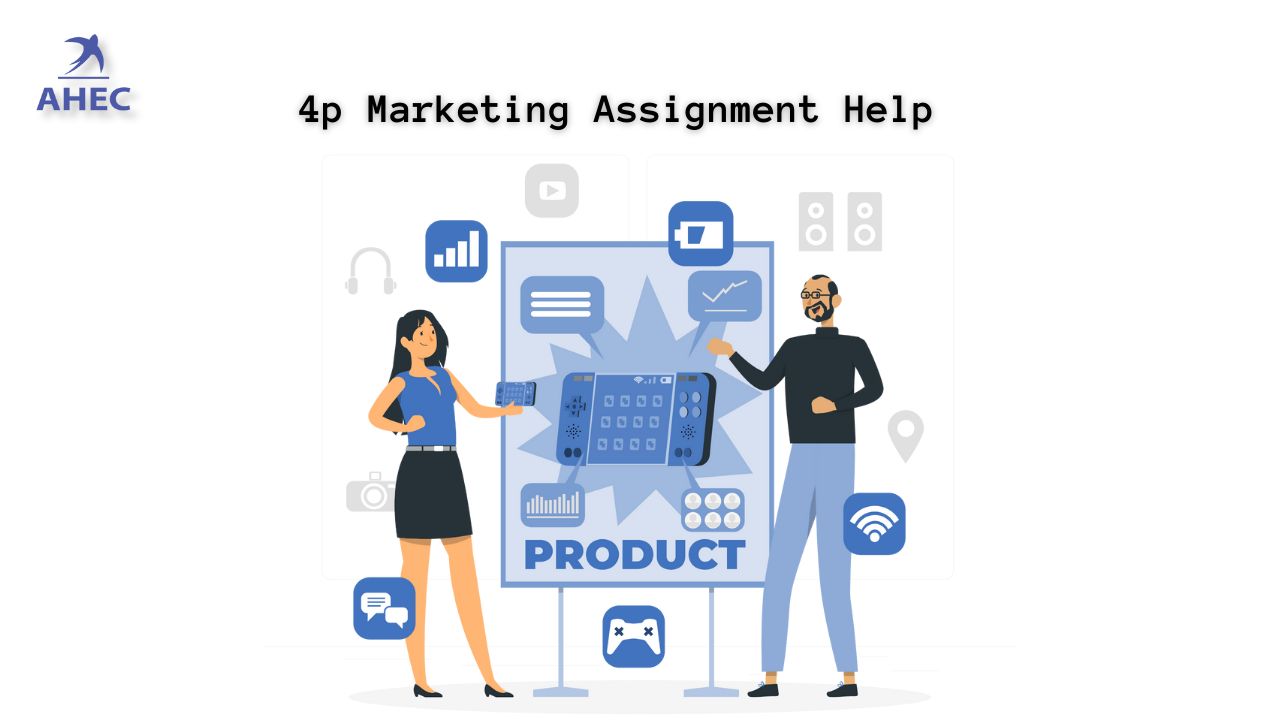
4p Marketing Assignment Help

Corporate Strategy Assignment Help

Project Risk Management Assignment Help

Environmental Law Assignment Help

History Assignment Help

Geometry Assignment Help

Physics Assignment Help

Clinical Reasoning Cycle

Forex Assignment Help

Python Assignment Help

Behavioural Finance Assignment Help

PHP Assignment Help
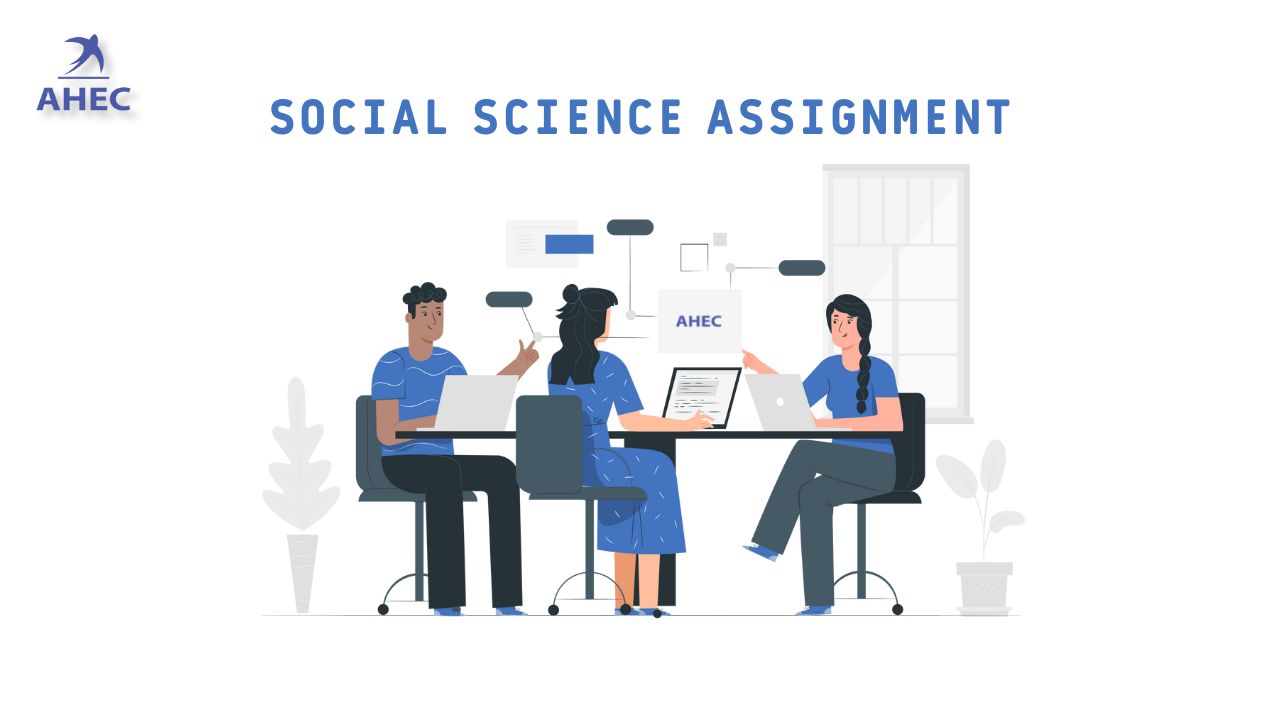
Social Science Assignment Help

Capital Budgeting Assignment Help

Trigonometry Assignment Help

Java Programming Assignment Help

Corporate Finance Planning Help

Sports Science Assignment Help

Accounting For Financial Statements Assignment Help

Robotics Assignment Help

Cost Accounting Assignment Help

Business Accounting Assignment Help

Activity Based Accounting Assignment Help

Econometrics Assignment Help

Managerial Accounting Assignment Help

R Studio Assignment Help
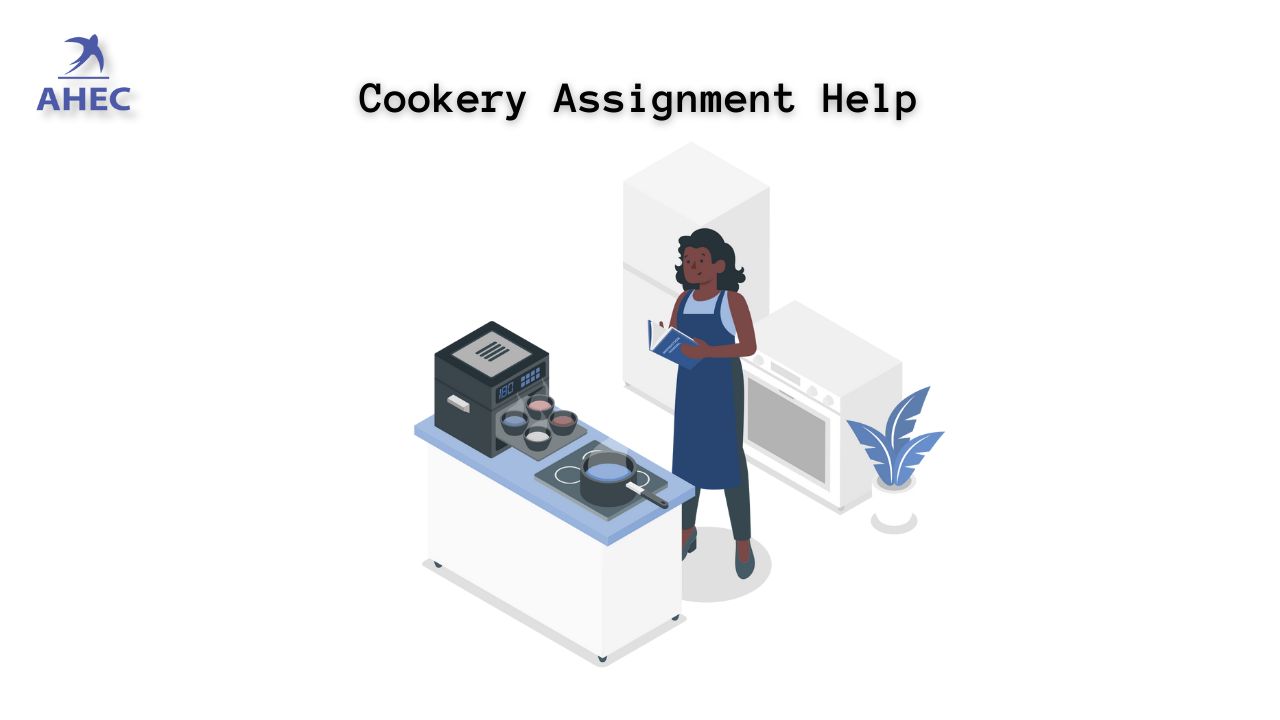
Cookery Assignment Help

Solidworks assignment Help
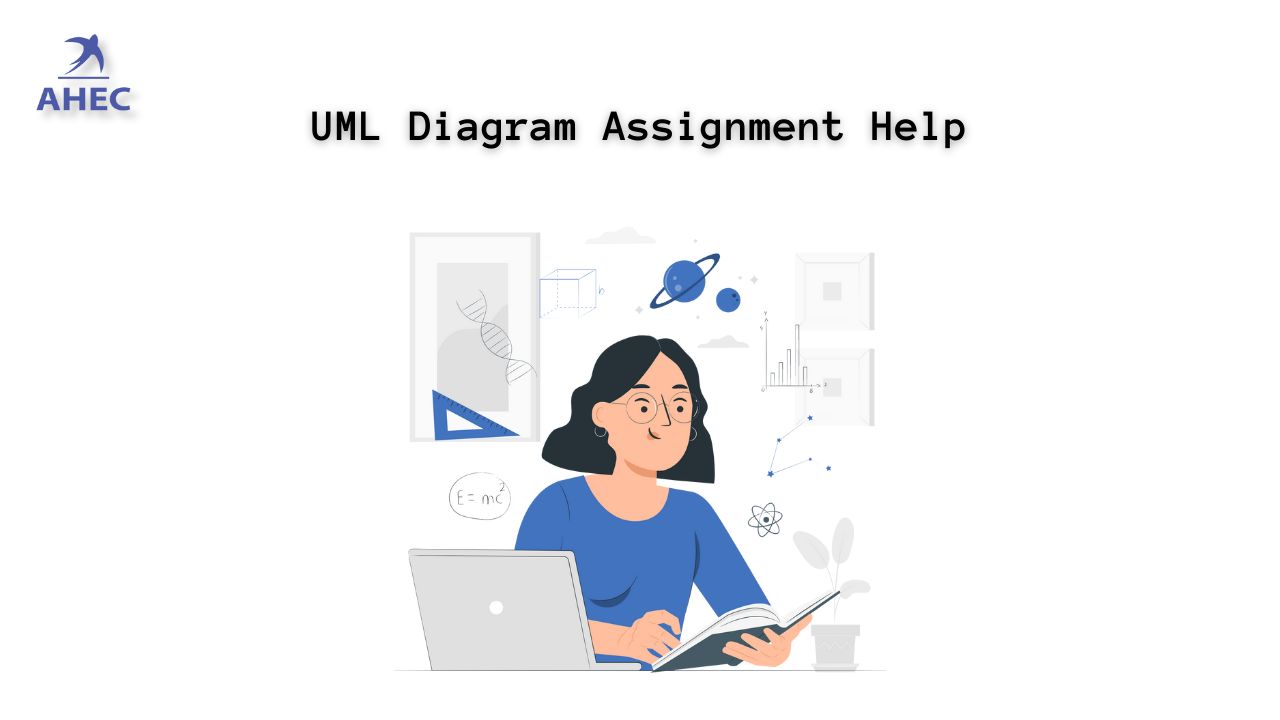
UML Diagram Assignment Help

Data Flow Diagram Assignment Help

Employment Law Assignment Help

Calculus Assignment Help

Arithmetic Assignment Help

Write My Assignment

Business Intelligence Assignment Help

Database Assignment Help

Fluid Mechanics Assignment Help

Web Design Assignment Help

Student Assignment Help

Online CPM Homework Help

Chemistry Assignment Help

Biology Assignment Help

Corporate Governance Law Assignment Help

Auto CAD Assignment Help

Public Relations Assignment Help

Bioinformatics Assignment Help

Engineering Assignment Help
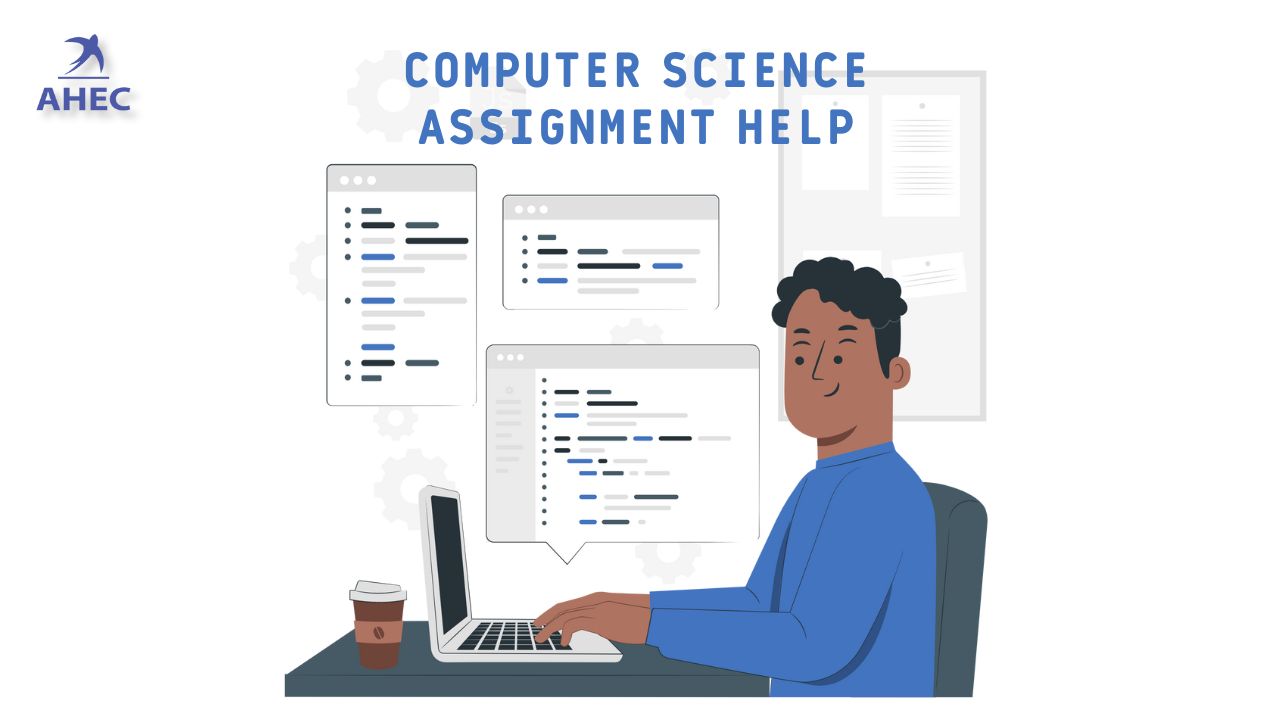
Computer Science Assignment Help

C++ Programming Assignment Help

Aerospace Engineering Assignment Help

Agroecology Assignment Help

Finance Assignment Help

Conflict Management Assignment Help

Paleontology Assignment Help

Commercial Law Assignment Help

Criminal Law Assignment Help

Anthropology Assignment Help

Biochemistry Assignment Help

Get the best cheap assignment Help

Online Pharmacology Course Help

Urgent Assignment Help

Paying For Assignment Help

HND Assignment Help

Legitimate Essay Writing Help

Best Online Proofreading Services

Need Help With Your Academic Assignment

Assignment Writing Help In Canada

Assignment Writing Help In UAE

Online Assignment Writing Help in the USA

Assignment Writing Help In Australia

Assignment Writing Help In the UK

Scholarship Essay Writing Help

University of Huddersfield Assignment Help

Ph.D. Assignment Writing Help

Law Assignment Writing Help

Website Design and Development Assignment Help
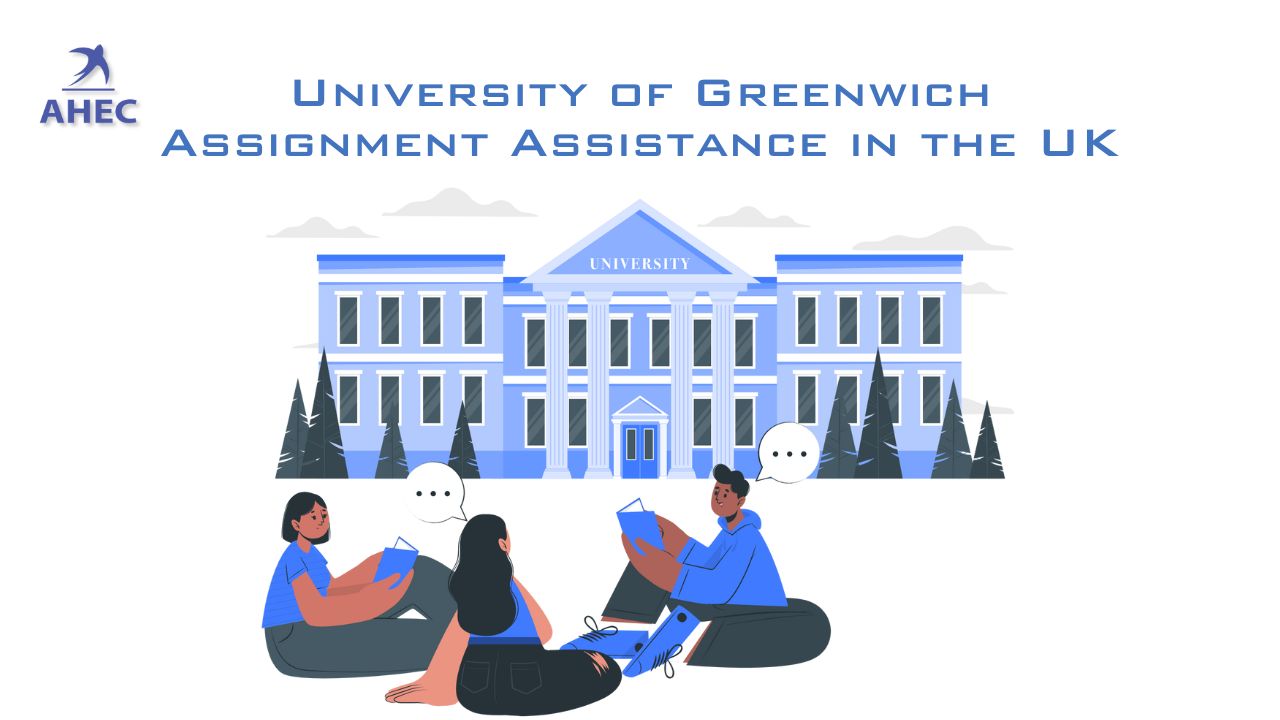
University of Greenwich Assignment Assistance in the UK
Research Proposal Topics In Biotechnology
Biotechnology is a fascinating subject that blends biology and technology and provides a huge chance to develop new ideas. However, before pursuing a career in this field, a person needs to complete a number of studies and have a thorough knowledge of the matter. When we begin our career must we conduct study to discover some innovative innovations that could benefit people around the world. Biotechnology is one of a variety of sciences of life, including pharmacy. Students who are pursuing graduation, post-graduation or PhD must complete the research work and compose their thesis to earn the satisfaction in their education. When choosing a subject for biotechnology-related research it is important to choose one that is likely to inspire us. Based on our passion and personal preferences, the subject to study may differ.
What is Biotechnology?
In its most basic sense, biotechnology is the science of biology that enables technology Biotechnology harnesses the power of the biomolecular and cellular processes to create products and technologies that enhance our lives and the wellbeing of the planet. Biotechnology has been utilizing microorganisms' biological processes for over six thousand years to create useful food items like cheese and bread as well as to keep dairy products in good condition.
Modern biotechnology has created breakthrough products and technology to treat rare and debilitating illnesses help reduce our footprint on the environment and feed hungry people, consume less energy and use less and provide safer, more clean and productive industrial production processes.
Introduction
Biotechnology is credited with groundbreaking advancements in technological development and development of products to create sustainable and cleaner world. This is in large part due to biotechnology that we've made progress toward the creation of more efficient industrial manufacturing bases. Additionally, it assists in the creation of greener energy, feeding more hungry people and not leaving a large environmental footprint, and helping humanity fight rare and fatal diseases.
Our writing services for assignments within the field of biotechnology covers all kinds of subjects that are designed to test and validate the skills of students prior to awarding their certificates. We assist students to successfully complete their course in all kinds of biotechnology-related courses. This includes biological sciences for medical use (red) and eco-biotechnology (green) marine biotechnology (blue) and industrial biotechnology (white).
What do we hope to gain from all these Initiatives?
Our primary goal in preparing this list of the top 100 biotechnology assignment subjects is to aid students in deciding on effective time management techniques. We've witnessed a large amount of cases where when looking for online help with assignments with the topic, examining sources of information, and citing the correct order of reference students find themselves stuck at various points. In the majority of cases, students have difficulty even to get through their dilemma of choosing a topic. This is why we contribute in our effort to help make the process easier for students in biotech quickly and efficiently. Our students are able to save time and energy in order to help them make use of the time they are given to write the assignment with the most appropriate topics.
Let's look at some of the newest areas of biotechnology research and the related areas.
- Renewable Energy Technology Management Promoting Village
- Molasses is a molasses-based ingredient that can be used to produce and the treatment of its effluent
- Different ways to evapotranspirate
- Scattering Parameters of Circulator Bio-Technology
- Renewable Energy Technology Management Promoting Village.
Structural Biology of Infectious Diseases
A variety of studies are being conducted into the techniques used by pathogens in order to infect humans and other species and for designing strategies for countering the disease. The main areas that are available to study by biotech researchers include:
- inlA from Listeria monocytogenes when combined with E-cadherin from humans.
- InlC in Listeria monocytogenes that are multipart with human Tuba.
- Phospholipase PatA of Legionella pnemophila.
- The inactivation process of mammalian TLR2 by inhibiting antibody.
- There are many proteins that come originate from Mycobacterium tuberculosis.
Plant Biotechnology
Another significant area for research in biotechnology for plants is to study the genetic causes of the plant's responses to scarcity and salinity, which have a significant impact on yields of the crop and food.
- Recognition and classification of genes that influence the responses of plants to drought and salinity.
- A component of small-signing molecules in plants' responses to salinity and drought.
- Genetic enhancement of plant sensitivity salinity and drought.
Pharmacogenetics
It's also a significant area for conducting research in biotechnology. One of the most important reasons for doing so could be the identification of various genetic factors that cause differences in drug effectiveness and susceptibility for adverse reactions. Some of the subjects which can be studied are,
- Pharmacogenomics of Drug Transporters
- Pharmacogenomics of Metformin's response to type II mellitus
- The pharmacogenomics behind anti-hypertensive medicines
- The Pharmacogenomics of anti-cancer drugs
Forensic DNA
A further area of research in biotechnology research is the study of the genetic diversity of humans for its applications in criminal justice. Some of the topics that could be studied include,
- Y-chromosome Forensic Kit, Development of commercial prototype.
- Genetic testing of Indels in African populations.
- The Y-chromosome genotyping process is used for African populations.
- Study of paternal and maternal ancestry of mixed communities in South Africa.
- The study of the local diversity in genetics using highly mutating Y-STRs and Indels.
- South African Innocence Project: The study of DNA extracted from historical crime scene.
- Nanotechnology is a new technology that can be applied to DNA genotyping.
- Nanotechnology methods to isolate DNA.
Food Biotechnology
It is possible to conduct research in order to create innovative methods and processes in the fields of food processing and water. The most fascinating topics include:
- A molecular-based technology that allows for the rapid identification and detection of foodborne pathogens in intricate food chains.
- The effects of conventional and modern processing techniques on the bacteria that are associated with Aspalathus lineriasis.
- DNA-based identification of species of animals that are present in meat products that are sold raw.
- The phage assay and PCR are used to detect and limit the spread of foodborne pathogens.
- Retention and elimination of pathogenic, heat-resistant and other microorganisms that are treated by UV-C.
- Analysis of an F1 generation of the cross Bon Rouge x Packham's Triumph by Simple Sequence Repeat (SSR/microsatellite).
- The identification of heavy metal tolerant and sensitive genotypes
- Identification of genes that are involved in tolerance to heavy metals
- The isolation of novel growth-promoting bacteria that can help crops cope with heavy metal stress . Identification of proteins that signal lipids to increase the tolerance of plants to stress from heavy metals
This topic includes high-resolution protein expression profiling for the investigation of proteome profiles. The following are a few of the most fascinating topics:
- The identification and profile of stress-responsive proteins that respond to abiotic stress in Arabidopsis Thalian and Sorghum bicolor.
- Analyzing sugar biosynthesis-related proteins in Sorghum bicolor, and study of their roles in drought stress tolerance
- Evaluation of the viability and long-term sustainability of Sweet Sorghum for bioethanol (and other by-products) production in South Africa
- In the direction of developing an environmentally sustainable, low-tech hypoallergenic latex Agroprocessing System designed specifically especially for South African small-holder farmers.
Bioinformatics
This is an additional aspect of biotechnology research. The current trend is to discover new methods to combat cancer. Bioinformatics may help identify proteins and genes as well as their role in the fight against cancer. Check out some of the areas that are suitable to study.
- Prediction of anticancer peptides with HIMMER and the the support vector machine.
- The identification and verification of innovative therapeutic antimicrobial peptides for Human Immunodeficiency Virus In the lab and molecular method.
- The identification of biomarkers that are associated with cancer of the ovary using an molecular and in-silico method.
- Biomarkers identified in breast cancer, as possible therapeutic and diagnostic agents with a combination of molecular and in-silico approaches.
- The identification of MiRNA's as biomarkers for screening of cancerous prostates in the early stages an in-silico and molecular method
- Identification of putatively identified the genes present in breast cancer tissues as biomarkers for early detection of lobular and ductal breast cancers.
- Examining the significance of Retinoblastoma Binding Protein 6 (RBBP6) in the regulation of the cancer-related protein Y-Box Binding Protein 1 (YB-1).
- Examining the role played by Retinoblastoma Binding Protein 6 (RBBP6) in the regulation of the cancer suppressor p53 through Mouse Double Minute 2 (MDM2).
- Structural analysis of the anti-oxidant properties of the 1-Cys peroxiredoxin Prx2 found in the plant that resurrects itself Xerophyta viscosa.
Nanotechnology
This is a fascinating aspect of biotechnology, which can be used to identify effective tools to address the most serious health issues.
- Evaluation of cancer-specific peptides to determine their applications for the detection of cancer.
- The development of a quantum dot-based detection systems for breast cancer.
- The creation of targeted Nano-constructs for in vivo imaging as well as the treatment of tumors.
- Novel quinone compounds are being tested as anti-cancer medicines.
- Embedelin is delivered to malignant cells in a specific manner.
- The anti-cancer activities of Tulbaghia Violacea extracts were studied biochemically .
- Novel organic compounds are screened for their anti-cancer potential.
- To treat HIV, nanotechnology-based therapeutic techniques are being developed.
Top 100 Biotechnology Research Proposal Topics to Consider in 2022
We've prepared a list of the top 100 most suggested dissertation topics, which were compiled by our experts in research. They've made sure to offer a an extensive list of topics that cover all aspects of the topic. We hope that this list will meet all of the requirements for assistance with your dissertation . Let us start with our list of subjects, one at a time each one
- Achieving effective control of renewable power technologies to help the village
- The production of ethanol through the aid of molasses and the treatment of its effluent
- Different approaches and aspects of Evapotranspiration
- Its scattering parameter is biotechnology circulator
- The inactivation of mammalian TLR2 via an inhibiting antibody
- The number of proteins produced by Mycobacterium tuberculosis
- Recognition and classification of genes that shape the responses of plants to drought and salinity.
- The small sign molecules that are involved in the response that plants have to the effects of salinity as well as drought
- Genetic improvement of the plant's sensitivity to drought and saltiness
- The pharmacogenomics of drug transporters
- The anti-cancer drugs' pharmacogenomics are based on pharmac
- The pharmacogenomics of antihypertensive medications
- Indels genotyping of African populations
- Genomics of the Y-chromosomes of African populations
- The profiling of DNA extracted from historical crime scenes Consider the implications of South African Innocence Project
- Nanotechnology-related methods for DNA isolation
- Nanotechnology applications in the context of DNA genotyping
- Recognizing the heavy metals that are tolerant with genotypes that are sensitive.
- Genetic characteristics that play a role within the procedure of gaining tolerance to metals
- The animal's DNA is authenticated by the species by the commercial production of raw meat products
- The use of molecular-based technology is in the sense of detection and identification of foodborne pathogens in complicated food systems
- Assessing the effectiveness of cancer-specific peptides that are suitable for efficient implementations in the area of diagnosis and treatment for cancer
- Quantum Dot-based detection system is being developed in relation to a positive breast cancer diagnosis
- It is targeted delivery of the embelin to cancerous cells
- Exploring the potential of novel quinone compounds as anti-cancer agents
- Treatment strategies for treating HIV in addition to the significance of nanotechnology the treatment of HIV.
- A review of the medicinal value the antioxidants found in nature.
- An in-depth examination of the structure of COVID spike proteins
- A review of the immune response to the stem therapy using cells
- CRISPR-Cas9 technology to aid in the process of editing the genome
- Tissue engineering and delivery of drugs through the application of Chitosan
- Evaluation of beneficial effects of cancer vaccines
- Use of PacBio sequencing in relation to genome assembly of model organisms
- Examining the connection between mRNA suppression and its effect on the growth of stem cells
- Biomimicry is a method of identifying of cancer cells
- The sub-classification and characterisation of the Yellow enzymes
- The process of producing food products that are hypoallergenic and fermented.
- The production of hypoallergenic milk
- The purification process for the thermostable phytase
- Bioconversion of the cellulose produce products that are significant for industry
- The investigation of the gut microbiota of the model organisms
- The use of fungal enzymes for the manufacture of chemical glue
- A look at those inhibitors to exocellulase as well as endocellulase
- Examine the value of microorganisms to aid in the recovery of gas from shale.
- Examine the thorough analysis of the method of natural decomposition
- Examine ways to recycle bio-wastes
- Improved bio-remediation in the case of oil spills
- The process of gold biosorption is accomplished with the aid of the cyanobacterium
- A healthy equilibrium between the biotic and the abiotic elements by using biotechnological devices
- The measurement of the mercury level in fish by means of markers
- Exploring the biotechnological capabilities from Jellyfish related microbiomes Jellyfish related microbiome
- What is the role of marine fungi to aid in attempts to break down plastics and polymers?
- Examine the biotechnological possibilities that can be extracted of dinoflagellates
- Removing endosulfan residues using the use of biotechnology the agriculture sector
- The creation of the ELISA method for the detection of crop virus
- Enhancing the quality of drinking water by the aid of the E.coli consortium
- The characterisation of E.coli is its isolation from the feces of Zoo animals
- Enhancing the resistance of crops to the attack of insects
- The reduction of the expenditure on agriculture by using efficient bio-tools
- Are there the most efficient ways to stop erosion of soils using the help of biotechnology-based tools?
- What can biotechnology do to assist in increasing the levels of vitamin content in GM food items?
- Enhancing the distribution of pesticides by using biotechnology
- Comparing the biofortification of folate in various types of corpses
- Examine the photovoltaic-based generation of ocean-based crop
- What is the best way to use nanotechnology will improve the efficiency of the agriculture sector?
- Analyzing the mechanisms that govern resistance to water stresses in models of plants
- Production and testing of human immune boosters within the test organisms
- Comparing genomic analysis to the usefulness of tools intended for bioinformatics
- The Arabinogalactan protein sequence and its value in the field of computational methods
- Analyzing and interpreting gut microbiota from model organisms
- Different methods of purification of proteins A comparative analysis
- The diagnosis of microbes and their function in micro-arrays of oligonucleotide oligonu
- The use of diverse techniques within the biomedical research field that includes micro-arrays technology
- The use of microbial community to produce the greenhouse effect
- Evaluation of the computational properties of various proteins that are derived from the marine microbiota
- E.coli gene mapping through the help of different tools for microbial research
- Intensifying the strains of Cyanobacterium the aid of gene sequencing
- Assessment and description by computation of crystallized proteins that are found in the natural world.
- MTERF protein and the use of it to end the process of transcription that occurs in mitochondrial DNA inside algae
- Reverse column chromatography in phase and its use in the separation of proteins
- The study of the various proteins that are found within Mycobacterium leprae.
- A review of the methods that are ideal to ensure the success of cloning RNA
- Examine the most common mistakes of biotechnology in conserving the ecology and natural environment.
- Is there a method to ensure that the medicinal plants are free of insects? Discuss
- What are the dangers caused by pest resistant animals on birds and human beings?
- What are the many areas of biotechnology that remain unexplored in terms research?
- What's the future of biotechnology in the medical field?
- Recombinant DNA technology to develop of new medical treatments
- What is the reason for the type of bacteria that is used to make vaccines with the aid of biotechnology?
- How can biotechnology aid in the development of new medicines that are resistant to the mutations of viruses and bacteria?
- Is there a long-term treatment for cancer that is available in the near term? Biotechnology could play an essential role in this?
- What is the reason it is so important that students remember the DNA codes in biotechnology?
- How can we create hybrid seeds with assistance of biotechnology?
- How can one create resistant plants to pests and what are the benefits of these seeds in final yields in agriculture?
- Examine bio-magnification and its effects on the ecology
- What are the causes to the reasons ecologists do not approve the use of pest-resistant seed, even though they are in application in agriculture?
- How has biotechnology influenced the lives of farmers in developing countries?
- Biotechnology can be used to boost the yield of plant species?
- Examine the role played by biotechnology to increase the production of the seasonal crops
- Are there any adverse side effects associated with pharmaceutical drugs when they are manufactured with biotechnological techniques? Let the issue with real-world examples
We attempted to cover the essential topics needed for research work. Other topics are available that could be picked based on our interests, the facilities available and resources available for the research, as well as resources and time limits.
We have reached the end of this list. We feel it was beneficial in satisfying the selection criteria. Furthermore, the inclusion of biotechnology-related assignment themes was done in such a manner that they may help us with the requirements of assignment writing kinds and forms. The themes listed above can meet our demands for topic selection linked to aid with case studies and essay assistance, research paper writing help , or thesis writing help .
Frequently asked questions
What are some biotechnology research proposal topics .
Some of biotechnology topics are:
What are the research areas in biotechnology ?
What is best topic for research in biotechnology , what are some examples of biotechnology , what is the scope of biotechnology , what is master in biotechnology , is biotechnology a high paying job , is biotechnology hard to study , is biotechnology a good career , which agecy is best for biotechnology assignment help , can a biotechnologist become a doctor , is biotechnology better than microbiology , is b tech biotechnology a good course .

Top 10 Best Universities Ranking list in India 2022

Generic Conventions: Assignment Help Services

Research Paper Topics For Medical

Top 5 Resources for Writing Excellent Academic Assignments

How to Write a Literature Review for Academic Purposes

Tips for Writing a killer introduction to your assignment

How To Write A Compelling Conclusion For Your University Assignment

Research Papers Topics For Social Science

Best 150 New Research Paper Ideas For Students

7 Best Plagiarism Checkers for Students And Teachers in 2024
Enquiry form.
Research Topics & Ideas: Education
170+ Research Ideas To Fast-Track Your Project

If you’re just starting out exploring education-related topics for your dissertation, thesis or research project, you’ve come to the right place. In this post, we’ll help kickstart your research topic ideation process by providing a hearty list of research topics and ideas , including examples from actual dissertations and theses..
PS – This is just the start…
We know it’s exciting to run through a list of research topics, but please keep in mind that this list is just a starting point . To develop a suitable education-related research topic, you’ll need to identify a clear and convincing research gap , and a viable plan of action to fill that gap.
If this sounds foreign to you, check out our free research topic webinar that explores how to find and refine a high-quality research topic, from scratch. Alternatively, if you’d like hands-on help, consider our 1-on-1 coaching service .
Overview: Education Research Topics
- How to find a research topic (video)
- List of 50+ education-related research topics/ideas
- List of 120+ level-specific research topics
- Examples of actual dissertation topics in education
- Tips to fast-track your topic ideation (video)
- Free Webinar : Topic Ideation 101
- Where to get extra help
Education-Related Research Topics & Ideas
Below you’ll find a list of education-related research topics and idea kickstarters. These are fairly broad and flexible to various contexts, so keep in mind that you will need to refine them a little. Nevertheless, they should inspire some ideas for your project.
- The impact of school funding on student achievement
- The effects of social and emotional learning on student well-being
- The effects of parental involvement on student behaviour
- The impact of teacher training on student learning
- The impact of classroom design on student learning
- The impact of poverty on education
- The use of student data to inform instruction
- The role of parental involvement in education
- The effects of mindfulness practices in the classroom
- The use of technology in the classroom
- The role of critical thinking in education
- The use of formative and summative assessments in the classroom
- The use of differentiated instruction in the classroom
- The use of gamification in education
- The effects of teacher burnout on student learning
- The impact of school leadership on student achievement
- The effects of teacher diversity on student outcomes
- The role of teacher collaboration in improving student outcomes
- The implementation of blended and online learning
- The effects of teacher accountability on student achievement
- The effects of standardized testing on student learning
- The effects of classroom management on student behaviour
- The effects of school culture on student achievement
- The use of student-centred learning in the classroom
- The impact of teacher-student relationships on student outcomes
- The achievement gap in minority and low-income students
- The use of culturally responsive teaching in the classroom
- The impact of teacher professional development on student learning
- The use of project-based learning in the classroom
- The effects of teacher expectations on student achievement
- The use of adaptive learning technology in the classroom
- The impact of teacher turnover on student learning
- The effects of teacher recruitment and retention on student learning
- The impact of early childhood education on later academic success
- The impact of parental involvement on student engagement
- The use of positive reinforcement in education
- The impact of school climate on student engagement
- The role of STEM education in preparing students for the workforce
- The effects of school choice on student achievement
- The use of technology in the form of online tutoring
Level-Specific Research Topics
Looking for research topics for a specific level of education? We’ve got you covered. Below you can find research topic ideas for primary, secondary and tertiary-level education contexts. Click the relevant level to view the respective list.
Research Topics: Pick An Education Level
Primary education.
- Investigating the effects of peer tutoring on academic achievement in primary school
- Exploring the benefits of mindfulness practices in primary school classrooms
- Examining the effects of different teaching strategies on primary school students’ problem-solving skills
- The use of storytelling as a teaching strategy in primary school literacy instruction
- The role of cultural diversity in promoting tolerance and understanding in primary schools
- The impact of character education programs on moral development in primary school students
- Investigating the use of technology in enhancing primary school mathematics education
- The impact of inclusive curriculum on promoting equity and diversity in primary schools
- The impact of outdoor education programs on environmental awareness in primary school students
- The influence of school climate on student motivation and engagement in primary schools
- Investigating the effects of early literacy interventions on reading comprehension in primary school students
- The impact of parental involvement in school decision-making processes on student achievement in primary schools
- Exploring the benefits of inclusive education for students with special needs in primary schools
- Investigating the effects of teacher-student feedback on academic motivation in primary schools
- The role of technology in developing digital literacy skills in primary school students
- Effective strategies for fostering a growth mindset in primary school students
- Investigating the role of parental support in reducing academic stress in primary school children
- The role of arts education in fostering creativity and self-expression in primary school students
- Examining the effects of early childhood education programs on primary school readiness
- Examining the effects of homework on primary school students’ academic performance
- The role of formative assessment in improving learning outcomes in primary school classrooms
- The impact of teacher-student relationships on academic outcomes in primary school
- Investigating the effects of classroom environment on student behavior and learning outcomes in primary schools
- Investigating the role of creativity and imagination in primary school curriculum
- The impact of nutrition and healthy eating programs on academic performance in primary schools
- The impact of social-emotional learning programs on primary school students’ well-being and academic performance
- The role of parental involvement in academic achievement of primary school children
- Examining the effects of classroom management strategies on student behavior in primary school
- The role of school leadership in creating a positive school climate Exploring the benefits of bilingual education in primary schools
- The effectiveness of project-based learning in developing critical thinking skills in primary school students
- The role of inquiry-based learning in fostering curiosity and critical thinking in primary school students
- The effects of class size on student engagement and achievement in primary schools
- Investigating the effects of recess and physical activity breaks on attention and learning in primary school
- Exploring the benefits of outdoor play in developing gross motor skills in primary school children
- The effects of educational field trips on knowledge retention in primary school students
- Examining the effects of inclusive classroom practices on students’ attitudes towards diversity in primary schools
- The impact of parental involvement in homework on primary school students’ academic achievement
- Investigating the effectiveness of different assessment methods in primary school classrooms
- The influence of physical activity and exercise on cognitive development in primary school children
- Exploring the benefits of cooperative learning in promoting social skills in primary school students
Secondary Education
- Investigating the effects of school discipline policies on student behavior and academic success in secondary education
- The role of social media in enhancing communication and collaboration among secondary school students
- The impact of school leadership on teacher effectiveness and student outcomes in secondary schools
- Investigating the effects of technology integration on teaching and learning in secondary education
- Exploring the benefits of interdisciplinary instruction in promoting critical thinking skills in secondary schools
- The impact of arts education on creativity and self-expression in secondary school students
- The effectiveness of flipped classrooms in promoting student learning in secondary education
- The role of career guidance programs in preparing secondary school students for future employment
- Investigating the effects of student-centered learning approaches on student autonomy and academic success in secondary schools
- The impact of socio-economic factors on educational attainment in secondary education
- Investigating the impact of project-based learning on student engagement and academic achievement in secondary schools
- Investigating the effects of multicultural education on cultural understanding and tolerance in secondary schools
- The influence of standardized testing on teaching practices and student learning in secondary education
- Investigating the effects of classroom management strategies on student behavior and academic engagement in secondary education
- The influence of teacher professional development on instructional practices and student outcomes in secondary schools
- The role of extracurricular activities in promoting holistic development and well-roundedness in secondary school students
- Investigating the effects of blended learning models on student engagement and achievement in secondary education
- The role of physical education in promoting physical health and well-being among secondary school students
- Investigating the effects of gender on academic achievement and career aspirations in secondary education
- Exploring the benefits of multicultural literature in promoting cultural awareness and empathy among secondary school students
- The impact of school counseling services on student mental health and well-being in secondary schools
- Exploring the benefits of vocational education and training in preparing secondary school students for the workforce
- The role of digital literacy in preparing secondary school students for the digital age
- The influence of parental involvement on academic success and well-being of secondary school students
- The impact of social-emotional learning programs on secondary school students’ well-being and academic success
- The role of character education in fostering ethical and responsible behavior in secondary school students
- Examining the effects of digital citizenship education on responsible and ethical technology use among secondary school students
- The impact of parental involvement in school decision-making processes on student outcomes in secondary schools
- The role of educational technology in promoting personalized learning experiences in secondary schools
- The impact of inclusive education on the social and academic outcomes of students with disabilities in secondary schools
- The influence of parental support on academic motivation and achievement in secondary education
- The role of school climate in promoting positive behavior and well-being among secondary school students
- Examining the effects of peer mentoring programs on academic achievement and social-emotional development in secondary schools
- Examining the effects of teacher-student relationships on student motivation and achievement in secondary schools
- Exploring the benefits of service-learning programs in promoting civic engagement among secondary school students
- The impact of educational policies on educational equity and access in secondary education
- Examining the effects of homework on academic achievement and student well-being in secondary education
- Investigating the effects of different assessment methods on student performance in secondary schools
- Examining the effects of single-sex education on academic performance and gender stereotypes in secondary schools
- The role of mentoring programs in supporting the transition from secondary to post-secondary education
Tertiary Education
- The role of student support services in promoting academic success and well-being in higher education
- The impact of internationalization initiatives on students’ intercultural competence and global perspectives in tertiary education
- Investigating the effects of active learning classrooms and learning spaces on student engagement and learning outcomes in tertiary education
- Exploring the benefits of service-learning experiences in fostering civic engagement and social responsibility in higher education
- The influence of learning communities and collaborative learning environments on student academic and social integration in higher education
- Exploring the benefits of undergraduate research experiences in fostering critical thinking and scientific inquiry skills
- Investigating the effects of academic advising and mentoring on student retention and degree completion in higher education
- The role of student engagement and involvement in co-curricular activities on holistic student development in higher education
- The impact of multicultural education on fostering cultural competence and diversity appreciation in higher education
- The role of internships and work-integrated learning experiences in enhancing students’ employability and career outcomes
- Examining the effects of assessment and feedback practices on student learning and academic achievement in tertiary education
- The influence of faculty professional development on instructional practices and student outcomes in tertiary education
- The influence of faculty-student relationships on student success and well-being in tertiary education
- The impact of college transition programs on students’ academic and social adjustment to higher education
- The impact of online learning platforms on student learning outcomes in higher education
- The impact of financial aid and scholarships on access and persistence in higher education
- The influence of student leadership and involvement in extracurricular activities on personal development and campus engagement
- Exploring the benefits of competency-based education in developing job-specific skills in tertiary students
- Examining the effects of flipped classroom models on student learning and retention in higher education
- Exploring the benefits of online collaboration and virtual team projects in developing teamwork skills in tertiary students
- Investigating the effects of diversity and inclusion initiatives on campus climate and student experiences in tertiary education
- The influence of study abroad programs on intercultural competence and global perspectives of college students
- Investigating the effects of peer mentoring and tutoring programs on student retention and academic performance in tertiary education
- Investigating the effectiveness of active learning strategies in promoting student engagement and achievement in tertiary education
- Investigating the effects of blended learning models and hybrid courses on student learning and satisfaction in higher education
- The role of digital literacy and information literacy skills in supporting student success in the digital age
- Investigating the effects of experiential learning opportunities on career readiness and employability of college students
- The impact of e-portfolios on student reflection, self-assessment, and showcasing of learning in higher education
- The role of technology in enhancing collaborative learning experiences in tertiary classrooms
- The impact of research opportunities on undergraduate student engagement and pursuit of advanced degrees
- Examining the effects of competency-based assessment on measuring student learning and achievement in tertiary education
- Examining the effects of interdisciplinary programs and courses on critical thinking and problem-solving skills in college students
- The role of inclusive education and accessibility in promoting equitable learning experiences for diverse student populations
- The role of career counseling and guidance in supporting students’ career decision-making in tertiary education
- The influence of faculty diversity and representation on student success and inclusive learning environments in higher education

Education-Related Dissertations & Theses
While the ideas we’ve presented above are a decent starting point for finding a research topic in education, they are fairly generic and non-specific. So, it helps to look at actual dissertations and theses in the education space to see how this all comes together in practice.
Below, we’ve included a selection of education-related research projects to help refine your thinking. These are actual dissertations and theses, written as part of Master’s and PhD-level programs, so they can provide some useful insight as to what a research topic looks like in practice.
- From Rural to Urban: Education Conditions of Migrant Children in China (Wang, 2019)
- Energy Renovation While Learning English: A Guidebook for Elementary ESL Teachers (Yang, 2019)
- A Reanalyses of Intercorrelational Matrices of Visual and Verbal Learners’ Abilities, Cognitive Styles, and Learning Preferences (Fox, 2020)
- A study of the elementary math program utilized by a mid-Missouri school district (Barabas, 2020)
- Instructor formative assessment practices in virtual learning environments : a posthumanist sociomaterial perspective (Burcks, 2019)
- Higher education students services: a qualitative study of two mid-size universities’ direct exchange programs (Kinde, 2020)
- Exploring editorial leadership : a qualitative study of scholastic journalism advisers teaching leadership in Missouri secondary schools (Lewis, 2020)
- Selling the virtual university: a multimodal discourse analysis of marketing for online learning (Ludwig, 2020)
- Advocacy and accountability in school counselling: assessing the use of data as related to professional self-efficacy (Matthews, 2020)
- The use of an application screening assessment as a predictor of teaching retention at a midwestern, K-12, public school district (Scarbrough, 2020)
- Core values driving sustained elite performance cultures (Beiner, 2020)
- Educative features of upper elementary Eureka math curriculum (Dwiggins, 2020)
- How female principals nurture adult learning opportunities in successful high schools with challenging student demographics (Woodward, 2020)
- The disproportionality of Black Males in Special Education: A Case Study Analysis of Educator Perceptions in a Southeastern Urban High School (McCrae, 2021)
As you can see, these research topics are a lot more focused than the generic topic ideas we presented earlier. So, in order for you to develop a high-quality research topic, you’ll need to get specific and laser-focused on a specific context with specific variables of interest. In the video below, we explore some other important things you’ll need to consider when crafting your research topic.
Get 1-On-1 Help
If you’re still unsure about how to find a quality research topic within education, check out our Research Topic Kickstarter service, which is the perfect starting point for developing a unique, well-justified research topic.

You Might Also Like:

66 Comments
This is an helpful tool 🙏
Special education
Really appreciated by this . It is the best platform for research related items
Research title related to school of students
How are you
I think this platform is actually good enough.
Research title related to students
My field is research measurement and evaluation. Need dissertation topics in the field
Assalam o Alaikum I’m a student Bs educational Resarch and evaluation I’m confused to choose My thesis title please help me in choose the thesis title
Good idea I’m going to teach my colleagues
You can find our list of nursing-related research topic ideas here: https://gradcoach.com/research-topics-nursing/
Write on action research topic, using guidance and counseling to address unwanted teenage pregnancy in school
Thanks a lot
I learned a lot from this site, thank you so much!
Thank you for the information.. I would like to request a topic based on school major in social studies
parental involvement and students academic performance
Science education topics?
plz tell me if you got some good topics, im here for finding research topic for masters degree
How about School management and supervision pls.?
Hi i am an Deputy Principal in a primary school. My wish is to srudy foe Master’s degree in Education.Please advice me on which topic can be relevant for me. Thanks.
Every topic proposed above on primary education is a starting point for me. I appreciate immensely the team that has sat down to make a detail of these selected topics just for beginners like us. Be blessed.
Kindly help me with the research questions on the topic” Effects of workplace conflict on the employees’ job performance”. The effects can be applicable in every institution,enterprise or organisation.
Greetings, I am a student majoring in Sociology and minoring in Public Administration. I’m considering any recommended research topic in the field of Sociology.
I’m a student pursuing Mphil in Basic education and I’m considering any recommended research proposal topic in my field of study
Research Defense for students in senior high
Kindly help me with a research topic in educational psychology. Ph.D level. Thank you.
Project-based learning is a teaching/learning type,if well applied in a classroom setting will yield serious positive impact. What can a teacher do to implement this in a disadvantaged zone like “North West Region of Cameroon ( hinterland) where war has brought about prolonged and untold sufferings on the indegins?
I wish to get help on topics of research on educational administration
I wish to get help on topics of research on educational administration PhD level
I am also looking for such type of title
I am a student of undergraduate, doing research on how to use guidance and counseling to address unwanted teenage pregnancy in school
the topics are very good regarding research & education .
Can i request your suggestion topic for my Thesis about Teachers as an OFW. thanx you
Would like to request for suggestions on a topic in Economics of education,PhD level
Would like to request for suggestions on a topic in Economics of education
Hi 👋 I request that you help me with a written research proposal about education the format
Am offering degree in education senior high School Accounting. I want a topic for my project work
l would like to request suggestions on a topic in managing teaching and learning, PhD level (educational leadership and management)
request suggestions on a topic in managing teaching and learning, PhD level (educational leadership and management)
I would to inquire on research topics on Educational psychology, Masters degree
I am PhD student, I am searching my Research topic, It should be innovative,my area of interest is online education,use of technology in education
request suggestion on topic in masters in medical education .
Look at British Library as they keep a copy of all PhDs in the UK Core.ac.uk to access Open University and 6 other university e-archives, pdf downloads mostly available, all free.
May I also ask for a topic based on mathematics education for college teaching, please?
Please I am a masters student of the department of Teacher Education, Faculty of Education Please I am in need of proposed project topics to help with my final year thesis
Am a PhD student in Educational Foundations would like a sociological topic. Thank
please i need a proposed thesis project regardging computer science
Greetings and Regards I am a doctoral student in the field of philosophy of education. I am looking for a new topic for my thesis. Because of my work in the elementary school, I am looking for a topic that is from the field of elementary education and is related to the philosophy of education.
Masters student in the field of curriculum, any ideas of a research topic on low achiever students
In the field of curriculum any ideas of a research topic on deconalization in contextualization of digital teaching and learning through in higher education
Amazing guidelines
I am a graduate with two masters. 1) Master of arts in religious studies and 2) Master in education in foundations of education. I intend to do a Ph.D. on my second master’s, however, I need to bring both masters together through my Ph.D. research. can I do something like, ” The contribution of Philosophy of education for a quality religion education in Kenya”? kindly, assist and be free to suggest a similar topic that will bring together the two masters. thanks in advance
Hi, I am an Early childhood trainer as well as a researcher, I need more support on this topic: The impact of early childhood education on later academic success.
I’m a student in upper level secondary school and I need your support in this research topics: “Impact of incorporating project -based learning in teaching English language skills in secondary schools”.
Although research activities and topics should stem from reflection on one’s practice, I found this site valuable as it effectively addressed many issues we have been experiencing as practitioners.
Your style is unique in comparison to other folks I’ve read stuff from. Thanks for posting when you have the opportunity, Guess I will just book mark this site.
Submit a Comment Cancel reply
Your email address will not be published. Required fields are marked *
Save my name, email, and website in this browser for the next time I comment.
- Print Friendly
- How we work
- PhD Research
PhD Research Proposal Sample
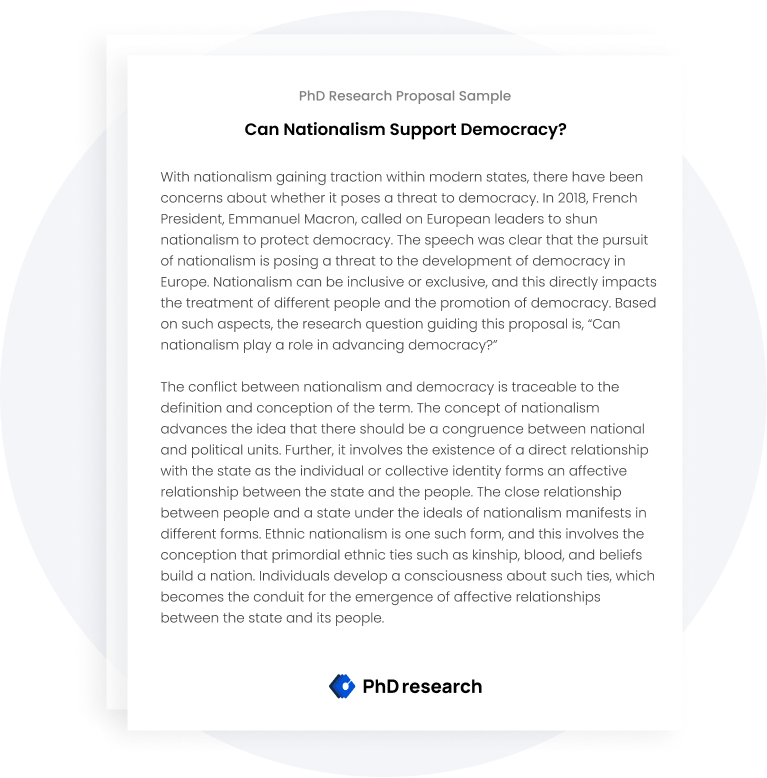
PhD Research Proposal Sample for Your Inspiration
One of the toughest things to do when it comes to completing a voluminous and challenging PhD research project is the proposal. The thing about the PhD research proposal is that you have to encapsulate everything that you want to accomplish, communicate in a concise way what you want to do, the resources that it will require, and finally you have to convince the reader of the viability and necessity of the project. It isn’t easy to know where to begin with something like this, but with the help of a PhD research proposal example from our professional PhD writing service , it’s easier than ever! We’ve got a wide range of samples made by doctoral proposal writer that you can take advantage of to learn all the ins and outs of crafting the highest quality proposal. No matter what the subject or specifications of your proposal are, our professional example research proposal is here to provide you with the help that you need!

If you need some help with PhD investigation, you may use these samples for writing. Another smart solution is to pick a sample research proposal with comments from an expert. Such samples are just to give you some idea about writing the research proposal. However, if you are still confused or facing some time constraints to write PhD proposal, we are here to help you. Our team of experts has vast experience and expertise to write a perfect research proposal for your needs. Moreover, we can help you choose the most relevant research proposal topics , write a paper from scratch, or improve the existing one. No matter what your subject is, we have the subject specialist on every subject, who have years of experience of writing research proposals. We ensure fresh and unique work, which is 100% plagiarism free. Each student is special to us, and we ensure your personal and work details will be kept secret. We can also help you to meet your short deadlines. With the lightning-fast experts on the board, our PhD proposal writing service accepts even last-minute tasks, delivering high-quality outcomes on time or even earlier, leaving enough time for revisions and comments from your supervisor. Get your PhD research proposal without any hassle, contact us Now!
Look Through Our Well-Written PhD Research Proposal Sample
The dynamics of hyperinflation and stabilization policies – the case of zimbabwe.
The dynamics of hyperinflation and stabilization policies
The running of the country can be viewed commercially as a business enterprise by the economists. The business needs to be run in equilibrium; a balance between supply and demand must be stricken if the entrepreneur or the owner of the enterprise is to enjoy any benefits accrued by running a business. In the case of a country, it should be governed in a way that that the prices of goods and services are kept in control. The stakeholders must not let the prices escalate beyond the ability of a typical citizen. Similarly, the release of cash into the economy should be maintained so that the flow of money is monitored and controlled, hence preserving the value of that particular currency.
This proposal will dig into inflation and find out how inflation has affected economies of a country, in particular, Zimbabwe and the ways to stabilize this condition. The dynamics of hyperinflation will also be looked into in detail to bring out the real picture and the damages it causes to an economy. The proposal will also focus on the causes of inflation in Zimbabwe and the how the theories of hyperinflation have applied in this context. The proposal will also look at the quantity theory of money and how it is associated with hyperinflation.
Introduction
Hyperinflation can be defined as a situation where the prices of goods and services escalate beyond control that the concept of inflation is an understatement. Economically, hyperinflation can be defined to occur when the total inflation over a period of three years is equivalent or exceeds 100%. Countries in hyperinflation usually experience rapid erosion of the real value of local currency prompting the population to hold a relatively stable foreign currency.
Hyperinflation makes the prices of goods and services in an economy to rise rapidly since the value of the local currency loses the real value quickly. Zimbabwe has experienced hyperinflation since 2001 with inflation rates over a whopping 100%. However, as from 2006, inflation in Zimbabwe has risen to an uncontrollable 1500% annually. It should be observed that Zimbabwe was the only country that was experiencing hyperinflation and the first in the 21st century to have hyperinflation. Inflation in Zimbabwe has been perceived in two ways. First, the private sector speculation which the Zimbabwean authorities argue that the private sector rises up the prices intentionally to maximize profits on to pile pressure on the economy through ruthless price increments.
Secondly, the authorities also believe that the withdrawal of aids and the international economic sanctions have led to an economic decline from the year 2000. This perception has the explanation that the printing and minting of excess money by the government is usually tailored to bridge the gap between the government revenue and the actual receipts. This proposal to examine these concepts in depth.
Literature review
In this section, the Cagan (1956) hyperinflation model will be examined, where he assessed the statistical connection between cash and changes in price by conducting instances of hyperinflation in six different countries across Europe. According to Cagan, the demand for money balances declined with increase in inflation, assuming inflation played a significant role in determining hyperinflation.
Milton Friedman bases his view of hyperinflation in quantity theory of money. This theory states that the relationship between money and the price level is directly proportional. This relationship implies that inflation will increase with an increase in money supply and the continued trend will lead to hyperinflation. In Zimbabwe, the supply of money and the prices of goods and services increased in tandem, as per the quantity theory of money because people opted to use the available cash immediately, rather than to wait on the depreciating cash. This, in turn, led to the increase of velocity as well as an increase of money through the printing of new currency, hence the exponential increase in prices of goods and services in Zimbabwe.
Methodology
This proposal will seek to clarify the mechanisms through which money, the setting of price behavior and the requirements of government revenue collaborate in Zimbabwe, to examine the explanations put forth by the authorities about the hyperinflation in Zimbabwe. To achieve this goal, the proposal will look at various models and tests that will lead to the understanding of the hyperinflation.
Granger causality test
In general, it is obvious that money engenders the rate of inflation, but the reverse could also be claimed to be true. It can be said that hyperinflation has self-perpetuating tendencies, due to the fact that the rise in prices of goods and services results in the rise in demand for nominal cash. Thus, causation develops from inflation to supply of money. This test investigates the amount of the existing value of money and premium is a utilizable component in the prediction of inflation.
Theoretical model
This model provides the classical quantity theory of money which believes that institutional factors determine the rate of money circulation. The economy is assumed to be or close to the real GDP. In this case, the growth of money does not have an effect in the real GDP. This implies that holding both variables constant, the growth rate of money is directly proportional to the rate of inflation. Inflation reduces money demand due to an increase in the opportunity cost of holding money. Hyperinflation in Zimbabwe increased the parallel market premium and consequently, a change in the parallel market premium affected the velocity of cash in the circulation. The data used here was derived from various sources including the website of the RBZ.
The inflation data and money supply were collected from RBZ while parallel exchange rate was collected from Carmen M. Reinhart, a Harvard Kennedy School Professor of the International Financial System. The methodology in this paper employs heavily the ARDL co-integration approach for investigating the relationship between the inflation and its determinants. ARDL was used because it has several advantages over other models of co-integration. ARDL can be used with time series data, can also be employed in a general-to-specific modeling by including insufficient numbers to lags for the data generating and error correction model (ECM) can be derived using ARDL co-integration model.
Theoretical/conceptual framework
Lagged change in the inflation and money supply growth are insignificant in the ARDL framework. Moreover, the ever-increasing prices are not unsustainable in the long-run; hence using the concept of long-run relations could give incorrect results. Zimbabwe had almost all her prices listed in foreign currencies which fully wrote off inflation inertia. In this case, an exchange rate is a useful tool for curbing inflation rates thereby making stabilization of hyperinflation less costly in comparison to moderate methods of dealing with hyperinflation. Through Ordinary Least Squares method, hyperinflation in Zimbabwe is said o have been caused by the rapid growth of paper money. The money demand model will seek to find out if this result is consistent. Additionally, a unit increase in the parallel market premium will result in an equivalent change in inflation.
High rates of interest will deter borrowing and foster saving, slowing the economy and hence disinflationary effects. The Treasury bill by the Zimbabwe government had turned the interest rates negative and this manipulation discouraged savings by the households. As per the Quantity Theory of money, hyperinflation in Zimbabwe could have been a monetary phenomenon and the only way to curb it would be to constrain the unnecessary money supply growth.
Research plan
Hyperinflation in Zimbabwe had severe adverse effects on the economy in regard to wealth, savings and deposits. Prices of essential goods and services became unreachable, especially to those on inflexible incomes. Countermeasures including price controls and foreign currencies ban to control the then escalating levels of inflation and the devaluation of the Zimbabwean currency were taken. Zimbabwe’s hyperinflation was at its peak when the government compelled the RBZ to issue banknotes of higher denominations, hence fuelling the rate of inflation. The Zimbabwean dollar value diminished at a faster rate and the RBZ could not keep up with the printing. This led to the abandonment of the Zimbabwean dollar in favor of the US dollar as well as the SA Rand.
This study aimed at finding the causes of hyperinflation in Zimbabwe by using the right econometric models. Its main aim is to find out if the growth of money has a positive effect on inflation. Additionally, it will be aimed at finding out whether the parallel market premium is directly proportional to the growth of inflation. Whether money supply is the primary driver of hyperinflation in Zimbabwe, the findings of the research will provide the answer.
Works cited
BBC News,. ‘Zimbabwe Abandons Its Currency’. N.p., 2014. Web. 29 Dec. 2014.
Cato Institute,. ‘Measurements of Zimbabwe’s Hyperinflation’. N.p., 2014. Web. 29 Dec. 2014.
Larochelle, C., J. Alwang, and N. Taruvinga. ‘Inter-Temporal Changes In Well-Being During Conditions Of Hyperinflation: Evidence From Zimbabwe’. Journal of African Economies 23.2 (2014): 225-256. Web.
McIndoe Calder, Tara. ‘Hyperinflation In Zimbabwe: Money Demand, Seigniorage And Aid Shocks’. SSRN Journal n. pag. Web.
Makochekanwa, A. ‘A Dynamic Enquiry Into The Causes Of Hyperinflation In Zimbabwe’. The University of Pretoria, Department of Economics (2007): n. pag. Print. Reserve Bank of Zimbabwe (RBZ),. ‘Bank Annual Reports From 2000-2008’. N.p., 2008. Web. 29 Dec. 2014
Sokic, Alexandre. ‘The Monetary Analysis Of Hyperinflation And The Appropriate Specification Of The Demand For Money’. German Economic Review 13.2 (2011): 142-160. Web.
Works, Anchor. ‘Data’. Carmenreinhart.com. N.p., 2014. Web. 29 Dec. 2014.
You can also take a look at our guide for writing an interpretive thesis if you feel like you’re struggling to write on your own. So check it out! You can also find out more helpful examples of research proposals if you contact us.
If you need an additional professionally written PhD research proposal sample or any kind of support – just contact us right now!

IMAGES
VIDEO
COMMENTS
Here's a step-by-step guide on how to compose a research proposal: Title: Create a clear and concise title that reflects the essence of your research. Introduction: Provide background information on the research topic. Clearly state the research problem or question. Justify the importance and relevance of your research.
As part of the PhD application process, you may be asked to summarise your proposed research topic in a research proposal. This is a document which summarises your intended research and will include the title of your proposed project, an Abstract, Background and Rationale, Research Aims and Objectives, Research Methodology, Timetable, and a ...
Written by Mark Bennett. You'll need to write a research proposal if you're submitting your own project plan as part of a PhD application. A good PhD proposal outlines the scope and significance of your topic and explains how you plan to research it. It's helpful to think about the proposal like this: if the rest of your application explains ...
Ingredient #1 - Topic/Title Header. Your research proposal's title should be your main research question in its simplest form, possibly with a sub-heading providing basic details on the specifics of the study. ... through the useful online information on the page and with my 1-on-1 online coaching with the amazing and professional PhD Kerryen.
Therefore, in a good research proposal you will need to demonstrate two main things: 1. that you are capable of independent critical thinking and analysis. 2. that you are capable of communicating your ideas clearly. Applying for a PhD is like applying for a job, you are not applying for a taught programme.
1. Title. Your title should indicate clearly what your research question is. It needs to be simple and to the point; if the reader needs to read further into your proposal to understand your question, your working title isn't clear enough. Directly below your title, state the topic your research question relates to.
Research proposal examples. Writing a research proposal can be quite challenging, but a good starting point could be to look at some examples. We've included a few for you below. Example research proposal #1: "A Conceptual Framework for Scheduling Constraint Management".
Choosing a PhD topic can seem like a pretty daunting prospect. You'll need to decide on a subject that's substantial and original enough to occupy your time for at least three years - and one that you won't find yourself losing interest in. Focusing on the Arts, Humanities and Social Sciences, this page features a selection of tips for ...
Formulating a Focused Research Question. After PhD topic selection, the next step is to refine it into a straightforward research question. Your research question should be specific, relevant, and well-defined. It should be detailed enough to guide your research and provide clear direction while also leaving room for exploration and analysis.
Guidance for PhD applicants Faculty of Education, University of Cambridge. The 1,500 word research proposal is an important element of your application to doctoral study, whether full-time or part-time. It offers you the opportunity to outline the research you intend to conduct, including how you plan to go about it, and how your research might ...
When writing your PhD proposal you need to show that your PhD is worth it, achievable, and that you have the ability to do it at your chosen university. With all of that in mind, let's take a closer look at each section of a standard PhD research proposal and the overall structure. 1. Front matter.
Identify the importance of your research; Show why you are the right person to do this research; Examples of research proposals. Research Proposal Example 1 (DOC, 49kB) Research Proposal Example 2 (DOC, 0.9MB) Research Proposal Example 3 (DOC, 55.5kB) Research Proposal Example 4 (DOC, 49.5kB) Subject specific guidance. Writing a Humanities PhD ...
In many countries an application for a PhD position includes a written research proposal, so my questions is what are some advises/strategies to come up with a good topic/idea for a PhD research proposal and how can one assess the quality/fruitfulness of an idea?As an undergraduate student one just doesn't have the experience to foresee which ideas might have promising research results and ...
Step 1: Check the requirements. Step 2: Choose a broad field of research. Step 3: Look for books and articles. Step 4: Find a niche. Step 5: Consider the type of research. Step 6: Determine the relevance. Step 7: Make sure it's plausible. Step 8: Get your topic approved. Other interesting articles.
A research proposal should present your idea or question and expected outcomes with clarity and definition - the what. It should also make a case for why your question is significant and what value it will bring to your discipline - the why. What it shouldn't do is answer the question - that's what your research will do.
All applicants for a PhD or MSc by Research must submit a research proposal as part of their application. Applicants must use the template form below for their research proposal. This research proposal should then be submitted online as part of your application. Please use Calibri size 11 font size and do not change the paragraph spacing ...
Research proposals are used to persuade potential supervisors and funders that your work is worthy of their support. These documents set out your proposed research that will result in a Doctoral thesis. They are typically between 1,500 and 3,000 words. Your PhD research proposal must passionately articulate what you want to research and why ...
Detailed Walkthrough + Free Proposal Template. If you're getting started crafting your research proposal and are looking for a few examples of research proposals, you've come to the right place. In this video, we walk you through two successful (approved) research proposals, one for a Master's-level project, and one for a PhD-level ...
So, you're finally nearing the end of your degree and it's now time to find a suitable topic for your dissertation or thesis. Or perhaps you're just starting out on your PhD research proposal and need to find a suitable area of research for your application proposal.. In this post, we'll provide a straightforward 6-step process that you can follow to ensure you arrive at a high-quality ...
Include early detection implications and usage in hospitals. Ethics of organ donations and transplantation. With this dissertation topic in science, examine the ethics of encouraging people to donate their organs. Include the implications for medical research and practice.
Students who are pursuing graduation, post-graduation or PhD must complete the research work and compose their thesis to earn the satisfaction in their education. When choosing a subject for biotechnology-related research it is important to choose one that is likely to inspire us. ... Top 100 Biotechnology Research Proposal Topics to Consider ...
I'm a student pursuing Mphil in Basic education and I'm considering any recommended research proposal topic in my field of study. Reply. Cristine on May 14, 2024 at 1:45 pm Research Defense for students in senior high ... I am PhD student, I am searching my Research topic, It should be innovative,my area of interest is online education,use ...
The thing about the PhD research proposal is that you have to encapsulate everything that you want to accomplish, communicate in a concise way what you want to do, the resources that it will require, and finally you have to convince the reader of the viability and necessity of the project. It isn't easy to know where to begin with something ...